
- REFERENCE CODE: 21039
- FUNDING: European Institute of Innovation & Technology
- PROGRAMME: EIT Manufacturing – EIT Manufacturing (KIC LE)
- PERIOD OF EXECUTION: 01/01/2021 – 31/12/2021
- COORDINATOR: Gil Manuel Magalhães de Andrade Gonçalves
- WEBSITE: https://www.eitmanufacturing.eu/news-media/activities/ai-for-manufacturing-smes-and-students
ABSTRACT:
Industry 4.0 is focused on information systems bringing together data from a large variety of sources. These data are subject to analytics to become the high fidelity information that enables systems to become more intelligent and autonomous. In these digital processes, Artificial Intelligence (AI) plays a central role in creating the necessary autonomy. In the Industrial transformation, there are frontrunners, followers and laggards among professionals, students and teachers. This AI-focused education project brings these groups together to accelerate the digital transformation. Next to teaching new generations of students, the professional education of technical workers and teachers is crucial because most of the current workforce has not received formal education in these digital technologies. This project will deliver state-of-the-art AI education using practical industry-relevant use cases to professionals and students in four countries, in co-operation with private companies.

- REFERENCE CODE: 21050
- FUNDING: European Institute of Innovation & Technology
- PROGRAMME: EIT Manufacturing – EIT Manufacturing (KIC LE)
- PERIOD OF EXECUTION: 01/01/2021 – 31/12/2021
- COORDINATOR: Gil Manuel Magalhães de Andrade Gonçalves
- WEBSITE: http://www.factoris.digital/
ABSTRACT:
FactoRIS’s project goal is to support digital transformation of existing production infrastructure of RIS based SMEs towards waste-free manufacturing. Typical challenges faced during this transformation will be identified. Best practice procedures will be developed for specific tasks (such as process optimization, condition monitoring of equipment, predictive maintenance, etc.). These will be provided as guidelines with the aim to encourage creative thinking. identified challenges and proposed solutions will be demonstrated on real testbeds in laboratories of activity partners (learning factories). It is envisaged to use simulation technologies (digital twins), data collection and evaluation in cloud, and other enabling technologies suitable for particular tasks. Since similar challenges are relevant to RIS countries in general, networking and sharing of good practices among activity partners will extend the impact to a transnational level.

- REFERENCE CODE: 777515
- FUNDING: European Commission
- PROGRAMME: H2020|SC|Transport – H2020|Societal Challenges|Transport
- PERIOD OF EXECUTION: 01/09/2017 – 31/08/2022
- COORDINATOR: António José de Pina Martins
- WEBSITE: https://cordis.europa.eu/project/id/777515
ABSTRACT:
Innovative Solutions in Future Stations, Energy Metering and Power Supply (IN2STEMPO) addresses the call S2R-CFMIP3- 01-2017 Smart System Energy Management Solutions and Future Station Solutions. IN2STEMPO aligns with the Shift2Rail objectives and aims to reduce lifecycle costs, improve reliability and punctuality, whilst increasing capacity, enhancing interoperability, and improving the customer experience.
The IN2STEMPO Smart Power Supply activities seek to contribute to the development of a railway smart grid based on the development of a unique railway power grid in an interconnected system. This new railway network will integrate smart metering, innovative power electronic components, energy management and energy storage systems. This new concept will lead to improved and optimized train traffic, energy costs, and energy supply security for the railway system. In parallel it will allow for optimized solutions to be developed through optimizing investment, operation costs and maintenance. The IN2STEMPO Smart Metering research activities will realize a non-intrusive smart metering sensor network at a railway system level. It will demonstrate an open system and interface for data collection, aggregation, and analysis at an open source ODM (Operational Data Management) level. The applications will exploit the energy analysis process with the aim of enhancing energy decision-making and line operation patterns. Other possible applications include preventative maintenance plans, asset management and Life Cycle Cost dashboards.
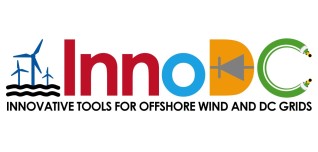
- REFERENCE CODE: 765585
- FUNDING: European Comission
- PROGRAMME: H2020|ES|MSC – H2020|Excellence Science|Marie Curie
- PERIOD OF EXECUTION: 01/09/2017 – 31/08/2021
- COORDINATOR: Helder Filipe Duarte Leite
- WEBSITE: https://innodc.org
ABSTRACT:
Europe’s power system has seen significant changes in recent decades, notably the development of renewable energy sources. However, this transition is far from complete, and further changes are essential to make our energy system ready to play its part in realizing the climate goals set at COP21. At present, renewable energy sources are increasing their share of electricity generation. This is particularly the case for offshore wind energy. InnoDC’s 14 participants prepare 15 early career researchers to play their role in the energy transition that will take place over the next 20-40 years.
The project focusses on the development of the electricity transmission system, targeting the connection of offshore wind, the integration of offshore wind with the existing power system (including the use of HVDC), and the operation of the future power system where large-scale wind is connected to a hybrid AC and DC power system. Technological development for offshore wind is ongoing. This research project focusses on the models and methodologies for the integration of these new technologies (e.g. offshore wind turbines, VSC HVDC converters, long AC cables) into the power system.
Challenges in these areas will be addressed in this project: firstly, these new devices behave inherently differently to traditional power system components. Secondly, the multi-actor/intersectoral nature of these systems means that they have distinct elements and devices interfacing with each other, each with limited information of the overall system.
The project will train the researchers in developing prototype tools to aid the developers and users of these new energy systems.

- REFERENCE CODE: 2020-1-DE01-KA226-HE-005738
- FUNDING: German Academic Exchange Service (DAAD)
- PROGRAMME: Erasmus+ Strategic Partnership
- PERIOD OF EXECUTION: 01/03/2021 – 28/02/2023
- COORDINATOR: Matthias Ludwig
- WEBSITE: www.asymptote-project.eu
ABSTRACT:
The ASYMPTOTE project is an Erasmus+ Strategic Partnership in the key action KA226 (DAAD). The project aims at the development of both, a website and a mobile application, for the conduct of synchronous online and distance mathematics education. The tool enables lecturers and teachers to select already existing or to create own tasks and mathematical learning paths, i.e. a sequence of tasks.
ASYMPTOTE (Adaptive SYnchronous Mathematics Learning PaThs for Online Teaching in Europe) meets the requirements of online and distance learning in these times. Through the adaptive learning environment, students can work on exactly those tasks fitting to their individual level. They receive systemic and also personal support from their teacher, who can easily monitor the learning progress of the students. As only a smartphone is required for students to use the ASYMPTOTE system, we can offer a powerful tool for online and distance learning which can be accessed by nearly all students on secondary and university level in Europe.
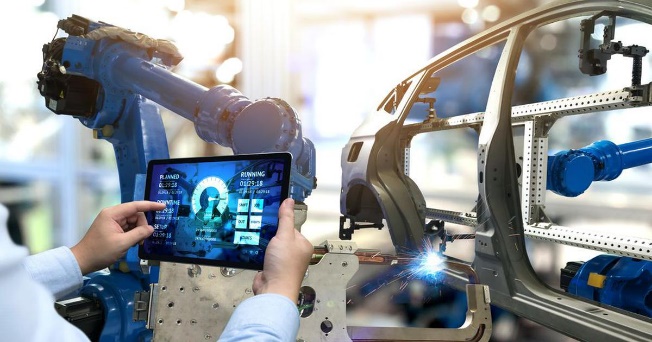
- REFERENCE CODE: 21194
- FUNDING: European Institute of Innovation & Technology
- PROGRAMME: EIT Manufacturing – EIT Manufacturing (KIC LE)
- PERIOD OF EXECUTION: 01/01/2021 – 31/12/2022
- COORDINATOR: Gil Manuel Magalhães de Andrade Gonçalves
- WEBSITE: https://apply.eitmanufacturing.eu/courses/course/25-digiman-advanced-studies-digitalisation-manufacturing
ABSTRACT:
We are at a time where all businesses across all sectors have been going through a digital transformation process. The importance of digital transformation is highly recognized by the European Commission that has launched several initiatives focused on the manufacturing sector through the “Digitising European industry” strategy. To get the benefits of digitalisation, industrial companies are highly dependent on the knowledge, skills, competencies and creativity of its workforce that needs to master the latest digital technologies as well as more transversal skills, the so-called T-shaped professional. DIGIMAN aims at contributing to successfully shaping workforce transformation by developing a post-graduation for the future T-shaped professionals with a combination of high-tech skills (cyber-physical systems and IoT, analytics and machine learning, robotics and AI, lean 4.0) and general skills across multiple domains (creativity, innovation, entrepreneurship, etc.).
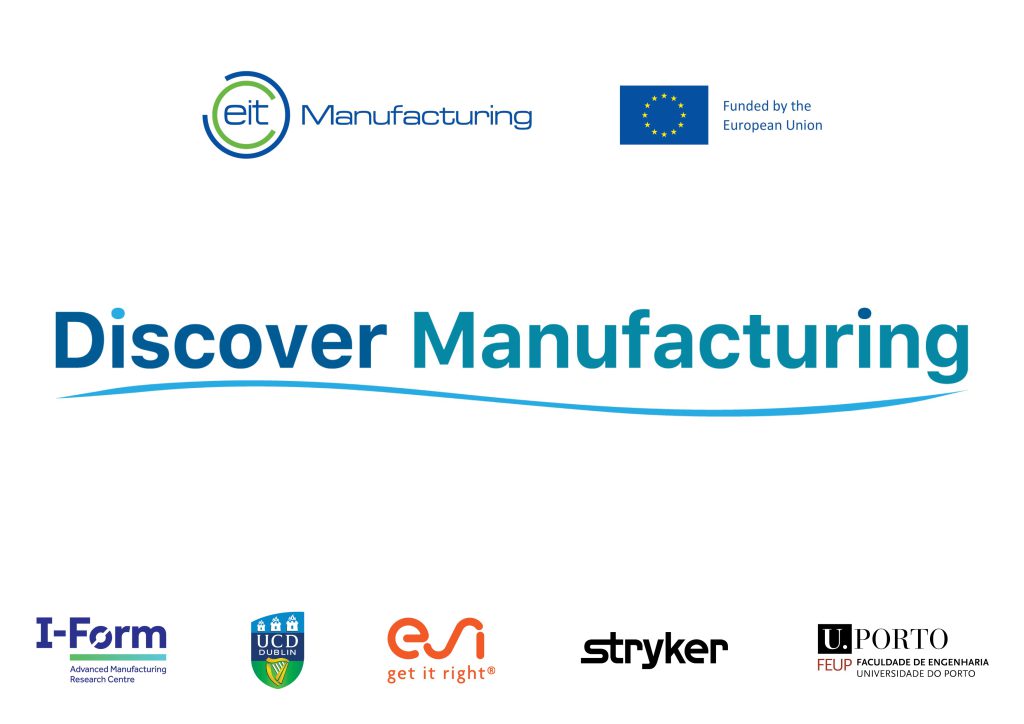
- REFERENCE CODE: 21219 DISCOVER MANUFACTURING
- FUNDING: European Institute of Innovation & Technology
- PROGRAMME: EIT Manufacturing – EIT Manufacturing (KIC LE)
- PERIOD OF EXECUTION: 01/01/2021 – 31/12/2022
- COORDINATOR: Gil Manuel Magalhães de Andrade Gonçalves
- WEBSITE: https://www.eitmanufacturing.eu/news-media/activities/educational-programme-on-advanced-manufacturing-for-secondary-school-students/
ABSTRACT:
DISCOVER MANUFACTURING proposes to change the negative perception that many 2nd level students, their teachers and parents have of manufacturing by giving them an image of an innovative, imaginative, impactful and society-oriented production activity.A European consortium of four partners from industry and academia proposes to design a training programme targeted at secondary school pupils (14-16 years old) in 6 countries: CZ, DE, FR, IE, PT, UK. The programme is using additive and virtual manufacturing as a tool to learn how to design, make parts, and work in teams.This programme will initially focus on training teachers and then support them in the delivery of the programme once in the classroom. To support the engagement of students across the participating schools, the consortium will hold a competition on the theme of socially-relevant manufacturing. The finalist team representatives from each country will compete in the EIT-M Discover Manufacturing international final.
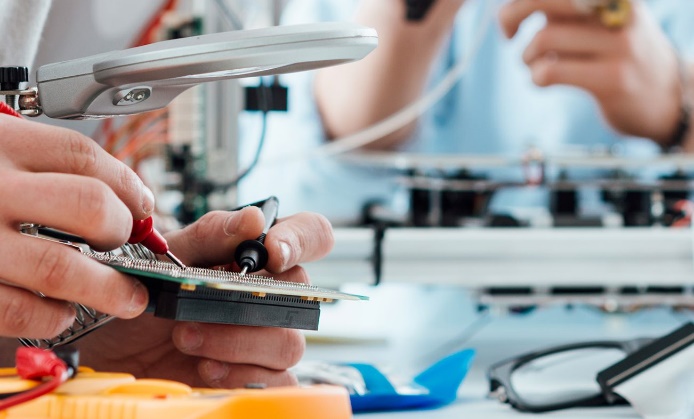
- REFERENCE CODE: 21317
- FUNDING: European Institute of Innovation & Technology
- PROGRAMME: EIT Manufacturing – EIT Manufacturing (KIC LE)
- PERIOD OF EXECUTION: 01/01/2021 – 31/12/2021
- COORDINATOR: Gil Manuel Magalhães de Andrade Gonçalves
- WEBSITE: https://www.eitmanufacturing.eu/news-media/activities/education-programs-development-in-ris-countries/
ABSTRACT:
This activity aims at promoting and developing the EIT M education programs in the RIS countries, with the involvement of local actors both in the development and in the learning.
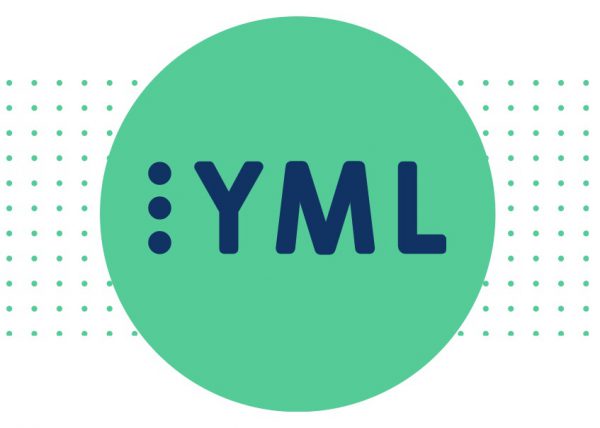
- REFERENCE CODE: 21061 YML – TWO
- FUNDING: European Institute of Innovation & Technology
- PROGRAMME: EIT Manufacturing – EIT Manufacturing (KIC LE)
- PERIOD OF EXECUTION: 01/01/2021 – 31/12/2022
- COORDINATOR: Gil Manuel Magalhães de Andrade Gonçalves
- WEBSITE: https://youngmanufacturingleaders.org/
ABSTRACT:
The project, in continuity with the activities started in 2020, aims to tackle the widespread skill mismatch affecting the manufacturing job market. The partners aim at disseminating knowledge among young people (university students and workers) regarding the digitized manufacturing sector, related education trainings and job opportunities. In order to do that, the activities will also revolve around the perception of industrial employment, showing how it is moving fast toward social and environmental sustainability.
Thanks to the preliminary work done in 2020, the project will be able to enlarge its reach. More regions will be involved, including areas that are part of RIS countries. On the other hand, the attention will increasingly be focused on inclusivity and gender balance, making sure that the ongoing technological development will represent also a step forward in terms of equality for all.
This second phase is a great opportunity to capitalize and consolidate the work done.

- REFERENCE CODE: 21215 M-NEST-II
- FUNDING: European Institute of Innovation & Technology
- PROGRAMME: EIT Manufacturing – EIT Manufacturing (KIC LE)
- PERIOD OF EXECUTION: 01/01/2021 – 30/12/2022
- COORDINATOR: Gil Manuel Magalhães de Andrade Gonçalves
- WEBSITE: https://m-nest.eu/
ABSTRACT:
M-NEST-II aims to deliver innovative courses enabling the financial exploitation of educational assets (e.g., nuggets, T&LFs, etc.) resultant from two previous activities: M-NEST-I and M-NEST-RIS. M-NEST-II has three main goals: 1) to start implementing educational programs based on EIT-M educational assets targeting the up-/re-skill of executives and professionals on emergent technologies of added-value manufacturing (AVM); 2) to increase the number of industrial
organizations / participants involved in EIT-M activities; 3) to build a robust and flexible business model for the M-NEST distributed factory, aiming the long-term financial return (beyond 2021) of EIT-M-supported educational assets, as well as a self-sustainable strategic agenda for the M-NEST network, covering upcoming industrial needs and other EIT-M flagships. This activity will directly contribute to the financial sustainability of the EIT-M.

- REFERENCE CODE: 869884
- FUNDING: European Commission
- PROGRAMME: H2020|Industrial Leadership|NMBP
- PERIOD OF EXECUTION: 01/10/2010 – 31/03/2023
- COORDINATOR: Gil Manuel Magalhães de Andrade Gonçalves
- WEBSITE: https://www.reclaim-project.eu
ABSTRACT:
The vision of RECLAIM is to demonstrate technologies and strategies to support a new paradigm for refurbishment and re-manufacturing of large
industrial equipment in factories, paving the way to a circular economy. Its goal is to save valuable resources by reusing equipment instead of discarding them. RECLAIM will support legacy industrial infrastructures with advanced technological solutions with built-in capabilities for in-situ repair, self-assessment, and optimal re-use strategies. It will establish new concepts and strategies for repair and equipment upgrade and factory layouts’ redesign to gain economic benefits to the manufacturing sector. The technological core of RECLAIM is a novel Decision Support Framework that guides the optimal refurbishment and re-manufacturing of electromechanical machines and robotics systems. The framework uses IoT sensors, novel prediction, and process optimization techniques to offer machine lifetime extension and thus increased productivity. Innovative fog computing and augmented reality techniques are combined with enhanced health monitoring and failure inspection and diagnosis methodologies that enhance the effective use of materials, improve maintenance capabilities, and eventually, drastically increase the return of investments (ROI). RECLAIM re-use approach also fosters servicing and upgrading of legacy equipment. For that, European machinery industry will move from an equipment-based business to a value-added business, where equipment servicing, and equipment knowledge are main business drivers. RECLAIM solution will be demonstrated in five real industrial environments to evaluate the lifecycle of the industrial equipment and show the feasibility of the approach for integration and scale-up to other industrial sectors. Having RECLAIM technology available, drastically increased efficiency, lifetime extension and high economic benefit will be achieved and a significant step towards 100% re-use will be made.
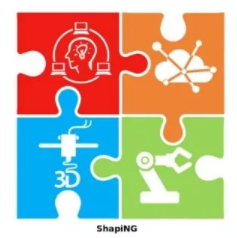
- REFERENCE CODE: 21018
- FUNDING: European Institute of Innovation & Technology
- PROGRAMME: EIT Manufacturing – EIT Manufacturing (KIC LE)
- PERIOD OF EXECUTION: 01/01/2021 – 31/12/2022
- COORDINATOR: Gil Manuel Magalhães de Andrade Gonçalves
ABSTRACT:
ShapiNG II project goal is to motivate and raise the interest of young Europeans, with particular emphasis on school students (ages 12-18), with a special focus on females, and on teaching the teachers for activities in the field of manufacturing, within the EIT RIS countries: Portugal, Spain, Greece, Slovakia, and Czech Republic. The developed and growing network of Smart Manufacturing Demonstrators, videos, and presentations will aid Universities and RTOs to attract young students in EIT RIS countries, creating a realistic and positive image of the manufacturing industry. By “socialising” with smart manufacturing challenges and career opportunities in early ages, students will be encouraged to consider a career in manufacturing and therefore help ensure a future with available and well qualified workforce. All the materials within the network of the ShapiNG II project will be used in activities to be held in schools to promote awareness about the manufacturing fields.
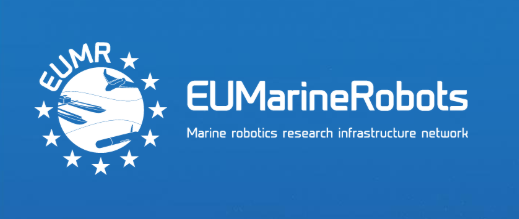
- REFERENCE CODE: 731103-2
- FUNDING: European Comission
- PROGRAMME: H2020|ES|RI – H2020|Excellence Science|Infrastructures
- PERIOD OF EXECUTION: 01/03/2018 – 28/02/2021
- COORDINATOR: João Tasso de Figueiredo Borges de Sousa
- WEBSITE: https://www.eumarinerobots.eu
ABSTRACT:
The European Multidisciplinary Seafloor and water column Observatory (EMSO – http://emso.eu/) is a consortium of partners sharing in a common strategic framework scientific facility. Formally it is a European Research Infrastructure Consortium (ERIC), legal framework created for pan-European large-scale research infrastructures. This consortium gathers 8 countries (France, Greece, Ireland, Italy, Portugal, Romania, UK and Spain) and constitutes one of the underwater parts of COPERNICUS.
EMSO has the scientific objective of long-term monitoring, mainly in real-time, of environmental processes related to the interaction between the geosphere, biosphere, and hydrosphere, including natural hazards. It is composed of several deep-seafloor and water column observatories, deployed at key sites around European waters, from the Arctic to the Atlantic, through the Mediterranean, to the Black Sea, thus forming a widely distributed pan-European infrastructure (http://emso.eu/observatories)
EMSO-PT organizes the Portuguese participation in the EMSO-ERIC initiative, bringing together 16 research institutions in the frame of the “Sistema de Apoio à Investigação Científica e Tecnológica (SAICT), FCT”. The Portuguese contribution is in two areas of the infrastructure, located in Mid-Atlantic ridge near Azores (Azores node) and Gulf of Cadiz and North Portugal continental shelf (Iberian Margin node). CCMAR is the responsible for the water column observatory of the Iberian Margin node.
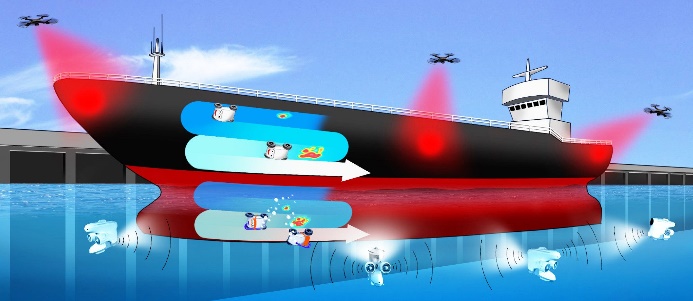
- REFERENCE CODE: 871260
- FUNDING: European Commission
- PROGRAMME: H2020|IL|ICT – H2020|IL|Information and Communication Technologies
- PERIOD OF EXECUTION: 01/01/2020 – 31/03/2024
- COORDINATOR: João Tasso de Figueiredo Borges de Sousa
- WEBSITE: https://www.bugwright2.eu
ABSTRACT:
The objective of BUGWRIGHT2 will be to bridge the gap between the current and desired capabilities of ship inspection and service robots by developing and demonstrating an adaptable autonomous robotic solution for servicing ship outer hulls. By combining the survey capabilities of autonomous Micro Air Vehicles (MAV) and small Autonomous Underwater Vehicles (AUV), with teams of magnetic-wheeled crawlers operating directly on the surface of the structure, the project inspection and cleaning system will be able to seamlessly merge the acquisition of a global overview of the structure with performing a detailed multi-robot visual and acoustic inspection of the structure, detecting corrosion patches or cleaning the surface as necessary – all of this with minimal user intervention. The detailed information provided will be integrated into a real-time visualization and decision-support user-interface taking advantage of virtual reality technologies. Although ships are the targeted
application, BUGWRIGHT2 technology may be easily adapted to different structures assembled out of metal plates, and in particular to storage tanks, our secondary application domain.
The project consists of a large consortium bringing together not only the technological knowledge from academia but the complete value chain of the inspection robotic market: two SMEs, one class society to evaluate the use of these technologies in the certification processes, a marine service provider and two harbors to provide access to ships, one shipyard to deploy the system within a maintenance framework and two shipowners. In addition, specialists in maritime laws and workplace psychologists will ensure that the digitalization of this market sector is designed around user acceptance. Finally, a specialist in innovation will lead the dissemination and exploitation activities.
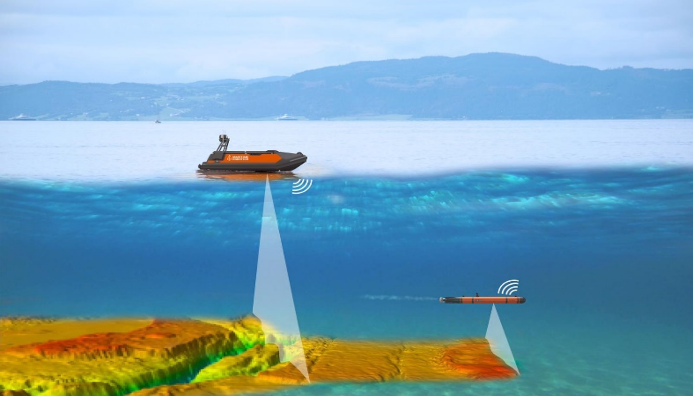
- REFERENCE CODE: EEA.BG.CALL1.010.2019
- FUNDING: Mecanismo Financeiro do Espaço Económico Europeu
- PROGRAMME: EEA Grants
- PERIOD OF EXECUTION: 26/10/2020 – 31/12/2022
- COORDINATOR: João Tasso de Figueiredo Borges de Sousa
- WEBSITE: https://www.oceanscan-mst.com/comap
ABSTRACT:
In this project, CoMap, we proposed to develop an end-to-end solution for bathymetric mapping with cooperative AUVs and ASVs. The overall objective is therefore to develop and commercialize innovative technologies for the Blue Growth sector. Furthermore, through the collaboration among OceanScan-MST (SME), the University of Porto in Portugal (academic institution) and Maritime Robotics (SME) in Norway, we strengthen the cooperation between enterprises and national research institutions, as well as the cooperation between Portugal and Norway.
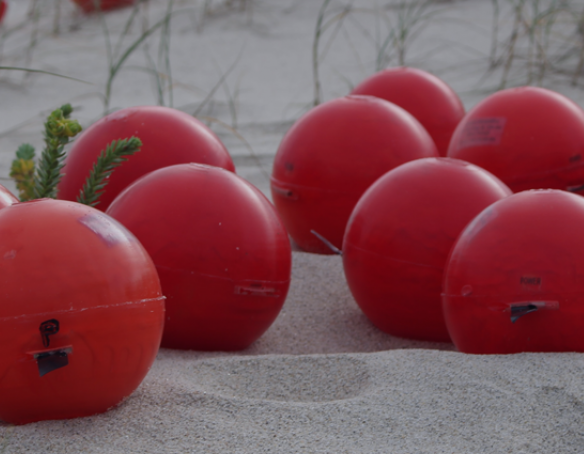
- REFERENCE CODE: 776825
- FUNDING: European Commission
- PROGRAMME: Climate Action, Environment, Resource Efficiency and Raw Materials
- PERIOD OF EXECUTION: 01/12/2017 – 28/02/2022
- COORDINATOR: João Tasso de Figueiredo Borges de Sousa
- WEBSITE: https://www.ec-meloa.eu
ABSTRACT:
The MELOA project proposes to develop a low-cost, easy-to-handle, wave resilient, multi-purpose, multi-sensor, extra light surface drifter for use in all water environments, ranging from deep-sea to inland waters, including coastal areas, river plumes and surf zones. The device will be developed as an upgrade to the WAVY drifter conceived by the Faculty of Engineering of the University of Porto, which was used to measure the surface circulation forced by wave breaking, including detailed structure of rifts and the littoral drift current (Jorge da Silva et al, 2016).
The philosophy of the WAVY drifter will essentially be respected: a small-size sphere with just enough room to accommodate power source, GPS-receiver, communications modules, antennae, sensors, and data processor; optimized buoyancy to prevent the drifter trajectory responding to the wind instead of the current, while providing just enough exposure of the antennae to ensure acquisition of the GPS signal at the required rate and reliable near real-time communications.
Given the low influence of wind upon the drifters’ displacements, MELOA will provide a cheap effective way to monitor surface currents and surface dynamic features anywhere in the World Ocean. Through equipping the drifters with thermistors at two different levels, the possibility is open for monitoring “near-skin temperature” and near-surface vertical temperature gradients, which will be invaluable for calibration/validation of satellite derived SST fields.

- REFERENCE CODE: POCI-01-0145-FEDER-031821
- FUNDING: FCT – Fundação para a Ciência e a Tecnologia
- PROGRAMME: FCT-UID – Programas Integrados de IC&DT (2015 – 2020)
- PERIOD OF EXECUTION: 01/07/2018 – 30/06/2021
- COORDINATOR: Dalila Benedita Machado Martins Fontes
- WEBSITE: https://www.inesctec.pt/pt/projetos/fast-manufacturing
ABSTRACT:
This project focus on manufacturing flexibility and sustainability. The former is researched by optimizing scheduling operations in flexible manufacturing systems through the cumulative integration of the several sub-problems faced in manufacturing flexible systems.
Sustainability is promoted via optimizing resource consumption and pollutant emissions along with the usual efficiency measures (makes pan, tardiness, workload, etc.) for production operations scheduling problems. Regarding the emissions, it also accounts for the possibility of buying and/or selling pollution permits. This project aims at developing mathematical programming models as well solutions methods to solve them for the problems. In addition, and due to the NP-hardness nature of the problems under consideration, we also aim at proposing solution approaches based on evolutionary algorithms that are capable of finding good solutions in a reasonable are also proposed.
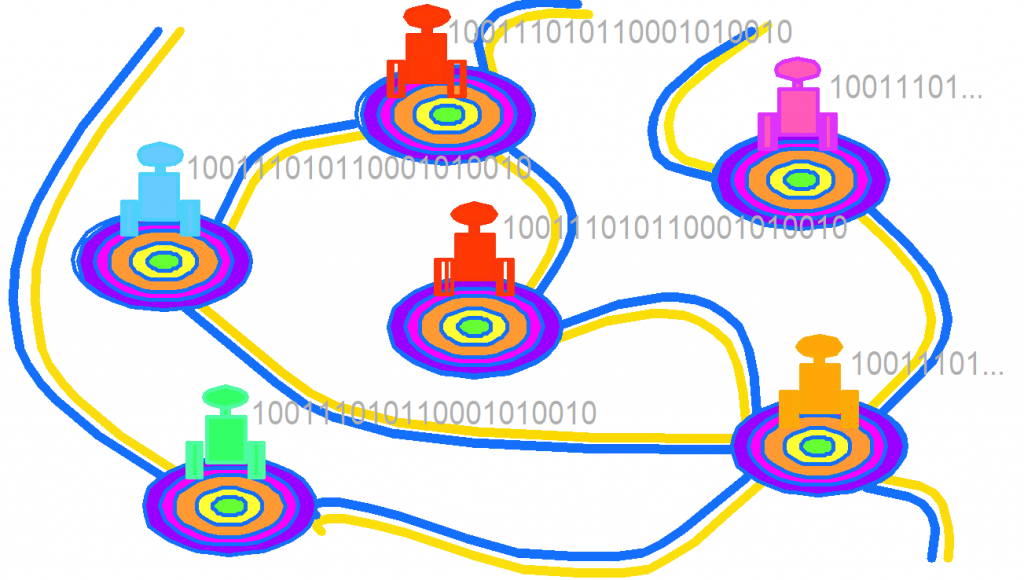
- REFERENCE CODE: NORTE-01-0145-FEDER-031411
- FUNDING: FCT – Fundação para a Ciência e Tecnologia
- PROGRAMME: P2020|COMPETE – Projetos em Todos os Domínios Científicos
- PERIOD OF EXECUTION: 15/08/2018 – 14/08/2021
- COORDINATOR: Fernando Manuel Ferreira Lobo Pereira
- WEBSITE: http://ramses.inesc.pt/HARMONY
ABSTRACT:
The aim is the development, analysis, and demonstration in case studies of controller design for networked CPS based on optimal control (OC). The task on dynamic programming-based OC problems derives Hamilton-Jacobi type conditions for systems with fast and slow dynamics, and sampled control systems. The task on algorithms on distributed OC combines approximated solutions of the necessary conditions of optimality with methods of distributed optimization. The task on distributed model based predictive control (MPC) for networked CPS uses theoretical tools from MPC for networked CPS. It addresses distributed MPC for coordinated output regulation in multiagent systems, and cloud based MPC of networked CPS. Finally, there are two applied tasks: energy management with multiple renewable sources, and multiple vehicle control and coordination.

- REFERENCE CODE: POCI-01-0145-FEDER-031823
- FUNDING: FCT – Fundação para a Ciência e Tecnologia
- PROGRAMME: P2020|COMPETE – Projetos em Todos os Domínios Científicos
- PERIOD OF EXECUTION: 01/06/2018 – 31/05/2021
- COORDINATOR: António Pedro Rodrigues Aguiar
- WEBSITE: https://sigarra.up.pt/feup/pt/projectos_geral.mostra_projecto?P_ID=73000
ABSTRACT:
IMPROVE aims to develop theoretical tools and algorithms in the field of mobile robotic systems using an approach that directly integrates not only the main task but also other objectives (economic, performance, robustness, security) in the presence of constraints and complex unstructured scenarios. Emphasis will be placed on developing non-linear control and optimization methods that are by construction formally correct, including fault detection and isolation strategies, for the purpose to obtain high-performance robotic systems that meet the requirements of end-users. For research to be oriented in high impact areas, the IMPROVE project will focus on the following classes of applications: Logistics and handling in industry using mobile robots; Cooperation of autonomous air and marine robotic vehicles for ocean monitoring and sampling.
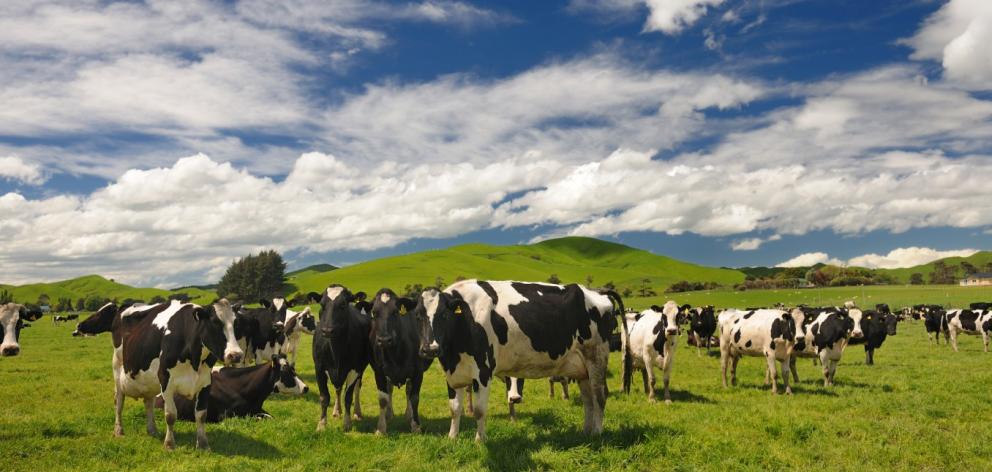
- REFERENCE CODE: NORTE-01-0145-FEDER-032485
- FUNDING: FCT – Fundação para a Ciência e Tecnologia
- PROGRAMME: P2020|COMPETE – Projetos em Todos os Domínios Científicos
- PERIOD OF EXECUTION: 01/06/2018 – 31/05/2021
- COORDINATOR: Fernando Manuel Ferreira Lobo Pereira
- WEBSITE: https://systec.fe.up.pt/projects/magic
ABSTRACT:
This project concerns the design, development and synthesis of a novel control and estimation architecture for multi-agent subsystems constrained by a common environment in which short term individual goals conflict with the long term desirable global system evolution. The envisaged control and estimation framework to feed Decision-Support Systems for all decision-making instances within the global system. The range of problems motivating such an architecture is extremely diverse and pervasive: Sustainable exploitation of natural resources, advanced manufacturing systems, governance of societal systems (health, mobility, etc.), and, control of artificial systems subject to constraints on the required resources. The proposed research effort is inspired in two different case studies of sustainable management pertinent to the North Region: a) Intensive dairy farmlands of lowland northwest Portugal. b) Farmlands in Peneda-Gerês national park targeting Biodiversity Conservation.

- REFERENCE CODE: DSAIPA/CS/0086/2020
- FUNDING: FCT – Fundação para a Ciência e Tecnologia
- PROGRAMME: INCO.2030 – Iniciativa Nacional Competências Digitais e.2030
- PERIOD OF EXECUTION: 01/04/2021 – 31/03/2024
- COORDINATOR: Fernando Manuel Ferreira Lobo Pereira
ABSTRACT:
The National Preparedness and Response Plan for the novel coronavirus called COVID-19 is a strategic tool to respond to a potential epidemic caused by the SARS-CoV-2 virus. It is based on guidelines from the World Health Organization and the European Center for Disease Prevention and Control and is the national reference document in COVID-19 response planning. Knowing that the knowledge currently available on the main characteristics of SARSCoV-2 at the level of the pathogenic domain and the potential for transmissibility is limited, the development of this project aims to satisfy a dual purpose.
The first objective aims to quantify the impact of different containment measures imposed in Portugal on the following predefined variables: mobility, air pollution and health, macroeconomic indicators (tourism, consumer price index, situation of Portuguese companies, trade balance and wages). This objective performs policy evaluation and causality inference in order to correctly estimate the effects underlying confinement measures on predefined variables through Granger Causality analysis, advanced regularization techniques based on Machine Learning and Augmented Synthetic Control method. We built a database from March 2, 2020, the day on which the first confinement measure is imposed in Portugal in the light of nº. 2836-A published in Series II of Diário da República 43/2020. We also built a multivariate panel database by district based on data collected from Google and by municipality based on data collected from INE in order to analyze the effects of a specific local treatment (i.e. sanitary cord imposed in Ovar).
The second objective aims to classify or predict the evolution of the various predefined variables as the target of the developed models, with special emphasis on forecasting the evolution of the Portuguese economy using the development of models based on recurrent neural networks (RNN) with the incorporation of attention mechanisms, of convolutional neural networks (CNN) such as WaveNet with optimization to study multivariate time series and CNN with multiple attention mechanism. In addition, innovative methodologies based on deep generative architectures will be developed and tested. In this domain, AC-GANs based on sequence-sequence generators provide good clarification on the evolution of the multivariate time series under analysis.
To better understand the relevance of both objectives, let us focus on the analysis of the improvement in air quality promoted by containment measures associated with COVID-19. Several research questions are immediately raised. Which air pollutants actually decreased with the imposition of containment measures? The media usually only points to the decrease in the concentration of nitrogen dioxide (NO2) due to the reduction in car traffic, while a discussion concerning changes in the concentrations of other air pollutants is often overlooked. What is the baseline used to measure the reduction in the concentration of atmospheric pollutants? If air pollution levels are subject to annual changes, year-on-year comparisons can be misleading in the absence of bias correction. Likewise, the concentration of atmospheric pollutants can be significantly influenced by local climatic conditions, which makes it difficult to compare with previous years or contemporaneously between different regions. What are the likely health benefits of reducing air pollution levels?
Several reasons justify understanding how responses given to the COVID-19 epidemic affect air pollution and its mortality rates. To accelerate recovery and learn lessons for future events, it is vital to understand all aspects of economic, social and public health impacts and to identify effective action measures. Specifically, it becomes relevant to understand how air pollution and public health respond to changes in social and economic activity. The application of a sanitary cord in a given region corresponds to the most extreme containment measure. However, it can be equally valuable in informing policy makers about how different air pollutants respond to a more lenient type of measure (e.g., road tax for transiting within cities). Calculating the health benefits implied by confinement measures offers a unique opportunity to identify costs incurred by society in normal daily routines. Mutatis mutandis, a similar argument applies to all other predefined variables as target of the developed models.
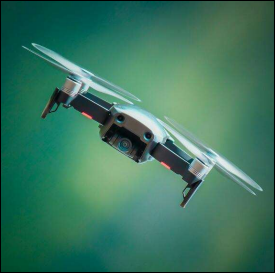
- REFERENCE CODE: PTDC/EEI-AUT/3522/2020
- FUNDING: FCT – Fundação para a Ciência e Tecnologia
- PROGRAMME: I&DT – Projectos de I&DT em Todos os Domínios Científicos
- PERIOD OF EXECUTION: 01/01/2021 – 31/01/2024
- COORDINATOR: António Pedro Rodrigues Aguiar
- WEBSITE: https://home.isr.uc.pt/~rui/projects.html
ABSTRACT:
New technologies related to robotics, smart sensors and advanced systems and control algorithms have the potential to be disruptive, which can generate significant social benefits, but can also produce serious consequences in the event of failure, especially in safety-critical applications. Safety is indeed a critical requirement in a wide range of engineering systems. The design of these systems is complex, involving several engineering areas, from the conceptual part to the specific algorithmic level, which will necessarily have formal guarantees, for the development, implementation and operation of hardware and software.
In this project, we address a specific area related to the methodological/conceptual part at the algorithmic level of automation and control systems design. The objective is to develop methodologies and algorithms for control systems, directly incorporating safety requirements into the formulation of the problem, guaranteeing proven (mathematically) safety certificates. To this end, a specific objective is to combine data-oriented approaches and machine learning techniques (known as unreliable and/or extremely difficult to obtain formal guarantees) with recent techniques based on control and optimization, capable of imposing invariance properties.
in the context of barrier control functions (CBFs) and Lyapunov control functions (CLFs) in the presence of complex constraints and uncertainties. Another objective is to extend the mentioned concepts to critical (possibly large-scale) network security systems, involving several agents operating autonomously in networks in dynamic environments, where in this case additional challenges arise due to the presence of a communication network. In this case, we will investigate the following crucial aspects: i) how to design control strategies to detect and/or isolate defective agents and malicious attacks, ii) how to improve robustness against defective and/or malicious agents in relation to the controllability and observability properties of the global system, and how to improve the resilience of consensus processes, thus covering a wide range of applications (distributed optimization, motion coordination tasks, among others).
This project is mainly dedicated to the conceptual aspects, but will also illustrate and demonstrate applications of safety critical systems. Namely, RELIABLE will also focus on the following case studies:
- Robotic vehicles in space, air and underwater scenarios: The considered scenarios are related to remote monitoring and exploration operations that require high performance control systems and are critical in the sense that the consequences of failure can lead to the loss of expensive equipment. An example to be studied is the development of path planning algorithms for hopping robots that traverse rough terrain on large celestial bodies (such as planets and moons) in safe (possibly disconnected) and unsafe regions. Other important topics to investigate include the development of location, navigation and control strategies.
movement of one or multiple autonomous underwater vehicles and fixed-wing unmanned aerial vehicles with safety guarantees. Here, it is intended to go beyond algorithm development, but also to test in realistic digital simulators and field experiments. - Mobile robotics in industry 4.0 scenarios: The objective is to contribute to the development of innovative solutions in the industry, with special emphasis on logistics and cooperative scenarios between workers and mobile robotic vehicles. The main points to address include the development of active and high performance perception algorithms, reactive planning, navigation and control systems that allow mobile robots to operate autonomously in unstructured environments, with effective human-robot collaboration and with security guarantees.
- This proposal brings together specialists from the areas mentioned above, involving a team of doctoral students, post-docs and several professors from the University of Porto and the University of Coimbra. The merit of this research program is that it is aimed at fundamental/conceptual research, but it is also well motivated by applications. The theoretical solutions and methodologies that are expected to be obtained should lead to a significant advance in the state of the art and will have as a starting point the results already obtained by the working group. An essential objective is the formal demonstration of security, robustness and stability of the developed algorithms. At a practical level, an important objective is to simulate, test, validate and integrate some of the algorithms developed in software tools for command and control of mobile robotic systems.
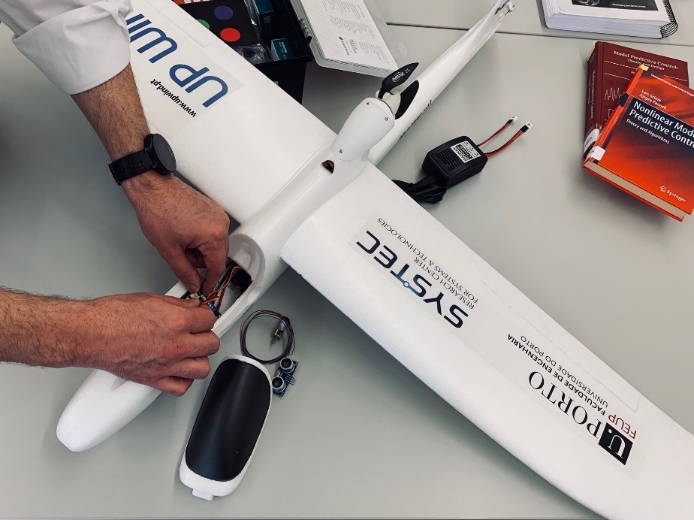
- REFERENCE CODE: 02/SAICT/2017-31447-UPWIND
- FUNDING: Fundação para a Ciência e Tecnologia
- PROGRAMME: P2020|COMPETE – Projetos em Todos os Domínios Científicos
- PERIOD OF EXECUTION: 01/05/2018 – 30/04/2021
- COORDINATOR: Fernando Arménio da Costa Castro e Fontes
- WEBSITE: http://www.upwind.pt/
ABSTRACT:
Wind is now considered the most economical renewable energy alternative for large-scale electricity generation. Despite the significant and growing number of wind farms, most of the existing wind energy is observed at high altitude and is yet to be exploited. Away from the Earth’s surface, the wind is stronger and, more importantly, much more consistent. However, conventional wind turbines mounted on towers cannot take advantage of such winds.
To exploit high-altitude winds, a growing number of research groups in Europe and the United States have recently proposed and developed suspended wind energy systems (AWES). The enormous potential of research in this topic has already been recognized at European level, with the AWESCO project having recently been awarded an ITN Marie Curie and an ERC to the HIGHWIND project. Furthermore, the economic viability of the concept is beginning to be explored in a few start-up companies: KiteGen (Italy), KitePower (Netherlands), Makani (USA, now part of Google X), to name a few.
This project addresses Wind Power Harness Systems with Flexible Wings (KGS), a particular type of AWES. Each KGS is composed of a Flexible Wing Module (Kite) connected to a Generator Module on land by a single cable. It is proposed here to investigate KGS in a multi-system configuration, develop and build 3 prototypes.

- REFERENCE CODE: POCI-01-0145-FEDER-028247
- FUNDING: Fundação para a Ciência e Tecnologia
- PROGRAMME: P2020|COMPETE – Projetos em Todos os Domínios Científicos
- PERIOD OF EXECUTION: 01/06/2018 – 31/05/2021
- COORDINATOR: Fernando Arménio da Costa Castro e Fontes
- WEBSITE: https://systec.fe.up.pt/projects/FCT-TOCHAIR/
ABSTRACT:
In this project we intend to use and develop knowledge of several scientific areas such as: Agronomy, Optimum Control, Statistics, Electronics, Informatics and Mathematical Modeling to be applied in irrigation systems for any type of crop, anywhere in the world.
The use of adequate mathematical modeling using optimum control tools and agronomic knowledge in irrigation systems allows: – an efficient use of water, that implies savings in water and energy; – a greater adequacy of the plant water requirement according to different stages of its growth, allowing a sustainable and healthy growth of the crop. – to detect faults in the irrigation system, – estimate the water need to the irrigation during one year for different scenarios: medium year, drought year, several drought year. The use of advanced technologies like informatics and electronic are fundamental not only to run a pilot installation on UTAD’s campus, but also to develop an efficient and user-friendly prototype.

- REFERENCE CODE: GRIS
- FUNDING: FCT – Fundação para a Ciência e Tecnologia
- PROGRAMME: I&DT – Projectos de I&DT em Todos os Domínios Científicos
- PERIOD OF EXECUTION: 15/04/2018 – 13/04/2021
- COORDINATOR: Rui Jorge de Lemos Neto
- WEBSITE: https://sigarra.up.pt/fep/pt/projectos_geral.ficha_projecto?p_id=74550
ABSTRACT
The present project targets the grain refinement induced by electromagnetic stirring to produce reliable Co-Cr medical implants. The following goals have been identified: i) to study the effect of a rotating EM field on the grain size and morphology of investment cast Co-Cr alloys; ii) to clarify the effect of EM field and different thermal properties; iii) to optimize the microstructure and the mechanical properties as function of
the EM field parameters (intensity, frequency, duration/moment of application); vi) to contribute for the understanding of the refinement mechanisms. For such purpose, the results from the simulation / filling + solidification will be correlated with the numerical simulation of EM field distribution. Furthermore, a simple and accurate numerical approach to predict the effect of the solidification conditions and EM stirring on the grain size and mechanical properties of investment cast parts will be developed.
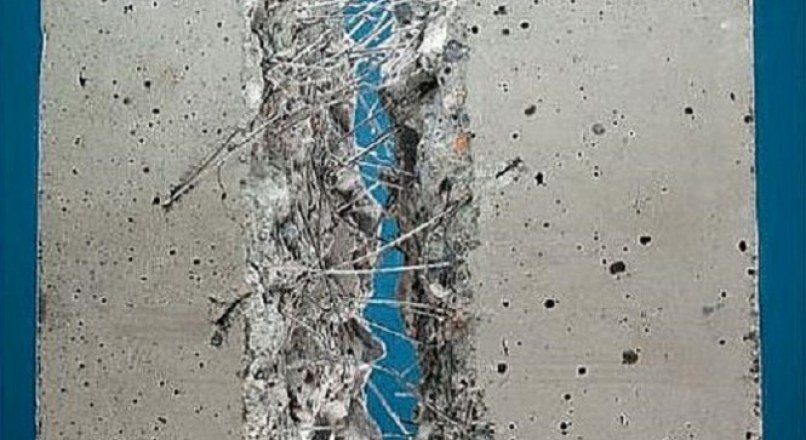
- REFERENCE CODE: POCI-01-0145-FEDER-031777
- FUNDING: Fundação para a Ciência e Tecnologia
- PROGRAMME: P2020|COMPETE – Projetos em Todos os Domínios Científicos
- PERIOD OF EXECUTION: 01/10/2018 – 30/09/2021
- COORDINATOR: Mário Jorge de Seixas Pimentel
- WEBSITE: https://sigarra.up.pt/faup/pt/projectos_geral.mostra_projecto?p_id=73325
ABSTRACT:
The funding needed for the rehabilitation, reinforcement or replacement of deteriorated structures is very significant and, in the Portuguese case, it is expected to increase in the coming decades. In addition to direct costs, the internalization of costs associated with CO2 emissions arising from construction, as well as indirect costs for users due to restrictions on the use of infrastructure, further aggravates the burden for society.
In the future, sustainable structures will be those that require only minimal preventive maintenance with little/no downtime. The research activity must therefore focus on the development of technologies to improve existing structures and minimize maintenance interventions, ensuring a long and safe lifetime.
The application of layers of ultra-high performance cementitious materials reinforced with fibers (UHPFRC) has proved to be a promising technique to achieve this goal, namely in the case of rehabilitation/reinforcement of concrete structures. Due to its excellent mechanical properties and virtually zero permeability, the structure can be strengthened, and durability improved. Additionally, the application of UHPFRC is associated with very rapid interventions.
The first objective of this proposal is the development of the second generation of UHPFRC, more eco-efficient due to its reduced cement content and the incorporation of a residue generated by the Portuguese oil refining industry (Ecat). In addition to exploiting its pozzolanic activity, ECat will be used to mitigate the high autogenous shrinkage of the UHPFRC, which represents an important performance improvement in view of its application in thin layers on a hardened concrete substrate.
The second objective of this investigation is to develop a methodology to predict the tensile response of the UHPFRC “in structure”. The tensile behavior of UHPFRC is critical for the efficiency of reinforcement and waterproofing and depends on the dosage and orientation of the fibers. Since these parameters can vary along the structure and be different from those observed in test specimens, it is not possible to define a law of intrinsic tensile behavior for the material. With a view to the “in-situ” characterization of the dosage and orientation of fibers in UHPFRC layers, and later use of this information in predictive behavior models, we intend to develop a non-destructive test (NDT) based on the ferromagnetic properties of steel fibers.
It is expected that the results of this project will significantly increase scientific knowledge about the mechanical performance and durability of the UHPFRC, thus contributing to its acceptance by the technical community.
The project has a multidisciplinary team, with domains of expertise covering structural engineering, materials science, and electromagnetism.

- REFERENCE CODE: POCI-01-0145-FEDER-032325
- FUNDING: FCT – Fundação para a Ciência e Tecnologia
- PROGRAMME: P2020|COMPETE – Projetos em Todos os Domínios Científicos
- PERIOD OF EXECUTION: 01/06/2018 – 31/05/2021
- COORDINATOR: João Tasso de Figueiredo Borges de Sousa
- WEBSITE: https://doris.lsts.pt/home
ABSTRACT:
The DORIS project intends to develop a modular autonomous surface vehicle (ASV), having the capability to sample the surface micro-layer, and consequently, perform analysis of surfactant films and the biological communities residing within the microlayer. This proposal integrates strong technological and scientific components, from conception to validation of the sampling and navigation systems. The scientific and engineering synergy of this project provides opportunities to use the vehicle in two specific study cases: a coastal study (Douro River plume) and an estuarine study (Ria de Aveiro). With these, we will validate the methods and observational requirements previously defined by the scientific and engineering partnership. The long-term overall objective will be therefore to contribute to a better knowledge of surfactant films formed in the interface of riverine and coastal waters, as well as to enhance our knowledge of bacteria and viruses biodiversity in the Ria Aveiro.
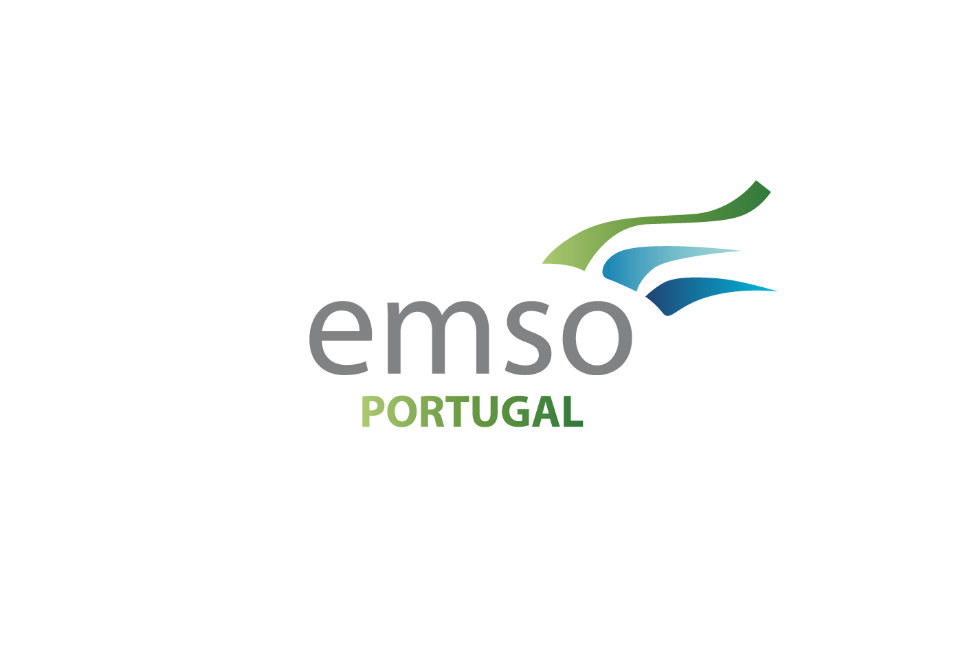
- REFERENCE CODE: POCI-01-0145-FEDER-022157 (PINFRA/22157/2016)
- FUNDING: FCT – Fundação para a Ciência e Tecnologia
- PROGRAMME: POCI 2010 – Programa Operacional Ciência Inovação 2010
- PERIOD OF EXECUTION: 01/07/2017 – 29/06/2021
- COORDINATOR: João Tasso de Figueiredo Borges de Sousa
- WEBSITE: https://www.inesctec.pt/pt/projetos/emso-pt
ABSTRACT:
Our oceans are the least-explored region of planet Earth. Protection and sustainable development of ocean resources presents formidable challenges. Robots will play an increasingly key role soon and this role will expand and become more challenging as we extend into deeper, remote, and hostile marine environments. Europe leads in many aspects of maritime but lacks well integrated and coordinated oceanic robotic infrastructure or presence. The marine-robotics industry is growing rapidly. It is a crucial high-value/high-cost sector with considerable entry-barriers to R&D. The full growth potential of this industry will be greatly enhanced with access to shared robotic research infrastructure. EUMarineRobots (EUMR) proposes an access infrastructure for the deployment of a full range of aerial, surface and subsurface marine robotic assets, the combined value of which is far greater than the sum of their parts. EUMR will open transnational access to significant national marine robotics R&D assets across Europe. The EUMR consortium comprises 15 partners from 10 countries who, collectively, can deploy a comprehensive portfolio of marine robotic assets with required associated support assets and expertise. The network is a strong and balanced grouping of globally distinguished key players with diverse, track-record of excellence across marine / robotic sectors. Partners are members of a wide variety of existing networks, and research infrastructure collaborations both formal and informal across Europe and the world. EUMR is a first stage in aggregating these networks and assets as world-leading for support and growth of a strong community of practice in marine robotics and marine.
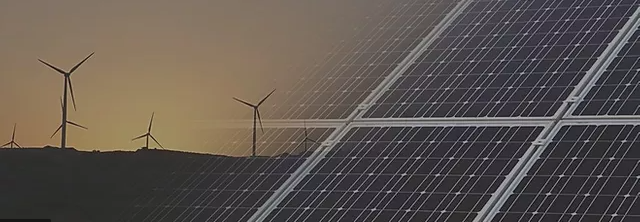
- REFERENCE CODE: NORTE-01-0145-FEDER-000033
- FUNDING: Comissão de Coordenação e Desenvolvimento Regional do Norte
- PROGRAMME: P2020|Norte2020-Projetos Integrados ICDT
- PERIOD OF EXECUTION: 01/07/2016 – 31/01/2021
- COORDINATOR: Fernando Manuel Ferreira Lobo Pereira
- WEBSITE: https://systec.fe.up.pt/projects/stride
ABSTRACT:
STRIDE focuses on excellence in R&D in the areas of SYSTEC and CMUP, organized to allow the rapid transition of its R&D results to disruptive innovations that promote the smart specialization agenda of the NORTH region of Portugal. Fundamental research into new paradigms of control, optimization and estimation is the central core to be designed through systems engineering processes in conjunction with computer science, namely machine learning, through cyber-physical systems in the following areas:
1. network robotic vehicles,
2. integrated renewable energy and mobility,
3. Advanced Production Systems,
beyond health and natural resources management to ensure environmental sustainability. The scientific research to be carried out will address national priorities and involve two-way dialogue with stakeholders and users.
STRIDE contributes to defining the basis and conjectures for impulse control, distributed estimation, and nontraditional predictive control schemes to address the challenges posed by the increasing emerging complexity in the field of applications that entails the need to process large amounts of data.
Thus, if on the conceptual side, it is important to obtain non-degenerate conditions, as well as to support computable approximations, on the application side, there is a need for the definition of distributed estimation and control architectures for very dynamic multi-agent heterogeneous systems. differentiated.
Application classes to consider consist of command and control for the coordination of multiple heterogeneous robotic vehicles, renewable resource management systems, interconnected renewable energy systems and advanced production systems.

- REFERENCE CODE: NORTE-01-0145-FEDER-000085
- FUNDING: Comissão de Coordenação e Desenvolvimento Regional do Norte
- PROGRAMME: NORTE2020
- PERIOD OF EXECUTION: 01/04/2021 – 31/03/2023
- COORDINATOR: Fernando Manuel Ferreira Lobo Pereira
ABSTRACT:
The SNAP concerns the proof of concept for Plant Factories. The motivation relies on the need to feeding large urban centers by timely supplying food, as well as a variety of medicinal or cosmetic products of vegetal origin produced in locations close to them entails substantial cuts in production costs and anthropogenic footprint, due to the significant decrease in environmental pressure in rural environments, in transportation, distribution, storage, and conservation. Moreover, the envisaged capability of controlling plant growth in a strongly controlled, and minimally intrusive context promotes not only a whole new level of food security, but also practically minimize the different market supply and consumer acquisition times which strongly mitigates the loss of perishable foods.The SNAP project involves two Research Lines (RLs). While RL1 investigates the investigation of the agronomic, and biological challenges leading to a better understanding of the involved phenomena and, ultimately to models of the growth of a selected number of plants, RL2 handles the systemic framework required to develop the management and control systems required in order to increase the system performance and the competitiveness of the Plant Factory System relatively to the current alternatives. Current Plant Factories feature very high production costs (mainly due to the consumption of energy), on the top of the very large investment in infra-structure.The consortium will bring the SNAP project to the center of its large international network, centred mainly in the European Union. Moreover, Stakeholders and endusers will be aggregated as described in the task concerning the management of project.The SNAP project is led by CMUP and involves the research units SYSTEC, Green UPorto, and ICT with a total of 11 staff members, 7 additional researchers with PhD degree and 5 PhD students to be hired with funds from the project. While CMUP, Green UPorto, and ICT are hosted at FCUP, SYSTEC is hosted at FEUP / ISR-Porto. The total requested funding is 598252,76 Euros and the co-participation of the co-promoters is of BBBB Euros. The host institutions also contribute with their own laboratories, notably, FEUP contributes with Laboratory on Control, Estimation and Optimization and with the Laboratory on Advanced Energy Systems, CMUP, ICT, and GreenUPorto
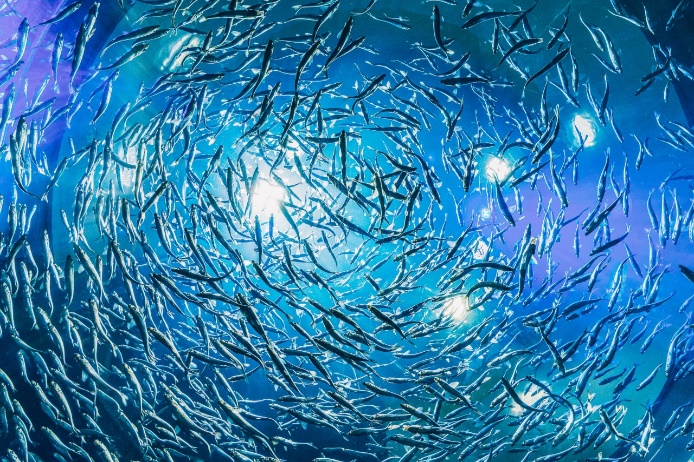
- REFERENCE CODE: P2020|Norte2020-Projetos Integrados ICDT
- FUNDING: Comissão de Coordenação e Desenvolvimento Regional do Norte
- PROGRAMME: P2020|COMPETE – Programas Mobilizadores
- PERIOD OF EXECUTION: 01/10/2020 – 30/09/2023
- COORDINATOR: Paulo Jorge Rosa Santos
- WEBSITE: https://cbma.uminho.pt/project/atlantida/#1536771842736-ef6a695f-d830
ABSTRACT:
ATLANTIDA will develop a platform for the monitoring of the North Atlantic Ocean and tools for the sustainable exploitation of the marine resources. This project will be implemented by a multidisciplinary team of UNorte.pt (Universities of Porto, Minho Trás-os-Montes) and CIIMAR (Interdisciplinary Centre of Marine and Environmental Research). This strategy will potentiate the expertise of the human resources involved in the consortium and implement a comprehensive approach of the Ocean observation and of the tools for its sustainable use. The project is coherently structured in 5 RLs, each organized in 2-4 R&D activities and 1 transversal activity for coordination, communication, dissemination, and exploitation of results. ATLANTIDA will create a coastal observatory and monitoring, focusing on data collection and supply, including monitoring platforms and systems, sensors, data management and information technologies. It will assess the impact of climate change on the wave energy resource. ATLANTIDA will study the role of global change as a driving force of biological change in coastal habitats, contributing to the management of coastal and estuarine ecosystems by developing new operative tools. Regarding deep sea, it will develop ocean circulation numerical models, ecological models and ecotoxicological tools. We will also produce knowledge baseline of deep-sea Vulnerable Marine Ecosystems (VMEs) to develop a framework for the co-creation of a knowledge baseline on the diversity and distribution of VMEs of the region. The project will focus also on monitoring the contamination and effects of microplastics, other contaminants and pathogenic bacteria in the environment. We will study pelagic ecosystems from microorganisms to large predators. The project will lead to the implementation of DNA (meta)barcoding approaches in marine species and communities’ biomonitoring. We will assess the distribution and residency patterns, and the genetic structure of the populations of cetaceans in the north coast of Portugal. The project will explore new opportunities to unlock the sustainable growth of aquaculture by minimizing the environmental impact of fish farms whilst contributing to safe and healthier food items for consumers and deliver across economic, social, and environmental sustainability dimensions. ATLANTIDA will create biobanks of marine organisms and valorize marine biomass, exploring them in terms of biotechnological applications such as pharmaceutical, industrial, and environmental bioremediation. Macroalgae and marine invertebrate species will be identified and selected as model organisms and used as raw material for the isolation of biopolymers with industrial interest, particularly sulphated polysaccharides, collagens, and bio adhesives.

- REFERENCE CODE: POCI-01-0247-FEDER-072627
- FUNDING: Agência Nacional de Inovação S.A.
- PROGRAMME: P2020|COMPETE – Projetos em Copromoção
- PERIOD OF EXECUTION: 01/03/2021 – 30/06/2023
- COORDINATOR: Gil Manuel Magalhães de Andrade Gonçalves
- WEBSITE: https://transparencia.gov.pt/fundos-europeus/beneficiarios-projetos/projeto/POCI-01-0247-FEDER-072627
ABSTRACT:
Despite the automotive industry being a pioneer in production automation, there are currently many processes that are performed manually, with negative impacts on the quality of the final product (i.e. dependent on the experience and skill of each operator). There are several factors that motivate the persistence of manual processes, highlighting the limitations of available robotic systems, which are incapable of autonomously replicating human expertise, detail and tactile perception in performing tasks of high mechanical complexity.
To overcome this problem, the project proposes the research and development of an intelligent modular solution that allows automating robotic systems commonly used in the automotive industry, still dependent on human action. The proposed solution is based on the premise of creating a virtual entity that, when connected to the robotic system controller, will allow it to replicate human expertise. This solution will integrate three complementary modules: (i) monitoring module, which will capture human movement in demonstrations carried out by qualified operators (using a complex system, consisting of computer vision, advanced sensors and wearables), (ii) movements for mapping between human joints and robotic joints (the level of abstraction will allow variable outputs, suitable for each robot), and (iii) robotic control module in which the outputs derived from the translation of movements will be applied to control the robots. It is also intended to explore and provide machine learning capabilities to robots in order to cope with production variability, through artificial intelligence methods.
The project foresees the construction of a prototype system of the solution, to be demonstrated in a real environment, in two use cases representative of tasks of high mechanical complexity, namely the polishing of the paint and the fitting of wiring harnesses.
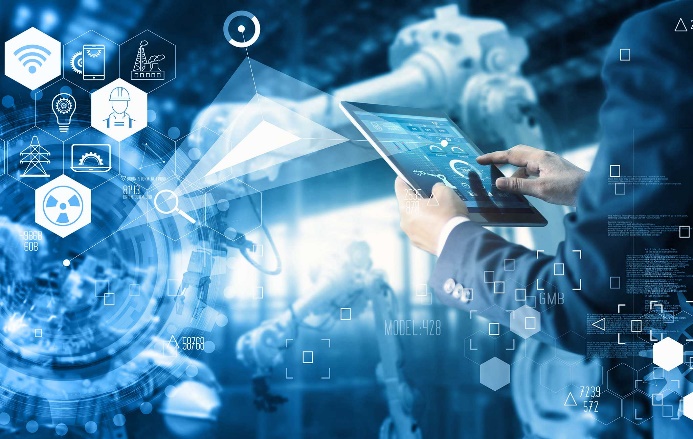
- REFERENCE CODE: EEA.BG.CALL1.010.2019
- FUNDING: Agência Nacional de Inovação S.A.
- PROGRAMME: P2020|COMPETE – Projetos em Copromoção
- PERIOD OF EXECUTION: 10/01/2018 – 31/12/2022
- COORDINATOR: Gil Manuel Magalhães de Andrade Gonçalves
- WEBSITE: https://www.zeugma.pt/pt-pt/projetos-idt
ABSTRACT:
Proposed by the ZEUGMA, SIEMENS and FEUP consortium, DEZMPP aims to develop an advanced digital production solution that allows to provide automatic manufacturing platforms, dedicated to the assembly and testing of components, with high added value manufacturing aimed at the factories of the future. The proposed solution is a response to the challenges of the Industrial Revolution 4.0, based on themes of efficiency, sustainability, and rational management of resources in an integrated, flexible and versatile way, from the perspective of the equipment life cycle. The need to create value applicable to this industry led this consortium to design a solution that allows the simulation and virtually validation of the structural, functional performance and sustainability of the equipment manufacturing processes to be developed by ZEUGMA, before its physical realization and implementation production line. It is intended to combine advanced technological concepts so that the solution is provided with a learning and predictive capacity for greater appreciation.
In addition to adding value to its design processes and to ZEUGMA’s activity, the integration of different information systems and advances makes it possible to add greater added value to the market, through an integrated offer and competitive advantage to potential customers. At the experimental level, innovative tools, analysis, evaluation and simulation modules, procedures and routines will be developed, integrating them with existing information systems and production lines of potential industrial customers, testing a pilot scenario. It is expected that the final product and skills created will constitute a new area and business model, thus extending the company’s value chain. DEZMPP will also contribute to improving the positioning of Portuguese companies in a market with sustained growth at a global level with an extremely important representation for the world economy (manufacture of components for the automotive industry).
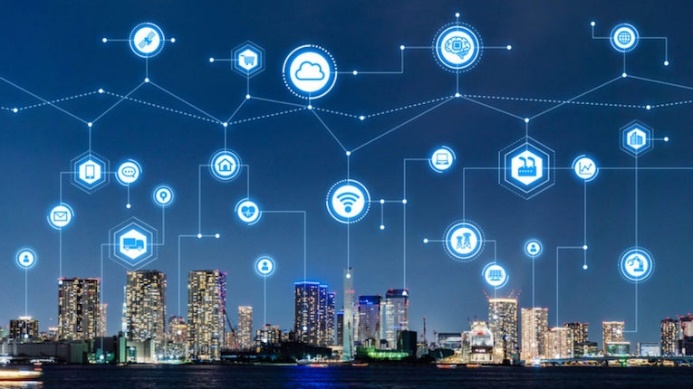
- REFERENCE CODE: NORTE-01-0145-FEDER-000073
- FUNDING: Comissão de Coordenação e Desenvolvimento Regional do Norte
- PROGRAMME: P2020|Norte2020-Projetos Integrados ICDT
- PERIOD OF EXECUTION: 01/03/2021 – 28/02/2023
- COORDINATOR: Rosaldo José Fernandes Rossetti
- WEBSITE: https://transparencia.gov.pt/fundos-europeus/beneficiarios-projetos/projeto/NORTE-01-0145-FEDER-000073
ABSTRACT:
The DynamiCITY platform consists of a collaborative and integrated virtual laboratory, based on multi-agent systems, to support research, innovation, and the development of ICT solutions for smart cities, with an emphasis on mobility systems. A holistic and multidisciplinary perspective explores AI techniques to improve cities’ resilience and adaptability in large-scale disruption and crisis scenarios.

- REFERENCE CODE: POCI-01-0247-FEDER-048183
- FUNDING: Agência Nacional de Inovação S.A.
- PROGRAMME: P2020|COMPETE – Programas Mobilizadores
- PERIOD OF EXECUTION: 01/04/2020 – 30/06/2023
- COORDINATOR: Gil Manuel Magalhães de Andrade Gonçalves
- WEBSITE: https://www.it.pt/Projects/Index/4712
ABSTRACT:
The FERROVIA 4.0 project aims to address the technological and market challenges that the global railway sector has faced, stimulating a collective action that mobilizes around a wide range of companies and entities of the R&I System that are part of the Portuguese Railway Platform Cluster, in carrying out industrial research activities that enhance experimental development and the demonstration of new solutions capable of promoting greater operational capacity, sustainability and competitiveness in railway systems.
The project’s overall objective is to develop different components, tools, and systems, to be tested on real rolling stock and infrastructure, which are oriented towards the sustainability of the railway system, to reduce operating and maintenance costs; for reliable information systems to support decision-making in asset management and for the creation of alert systems to trigger protection/intervention measures. It is also the project’s ambition to ensure that cybersecurity technologies and methodologies are incorporated into the information and communication technology structure of the railway system, to avoid desired intrusions.
In pursuit of these objectives, the FERROVIA 4.0 project presents 4 PPS (Products, Processes, Services) with R&DT activities, to which 1 PPS for Management and Wide Disclosure of Results will be added, which will be carried out by 22 business and non-business entities and 4 renowned partners in the Railway sector in Portugal, bringing together the most varied skills and enhancing the consolidation of the Portuguese offer of solutions for railway systems.
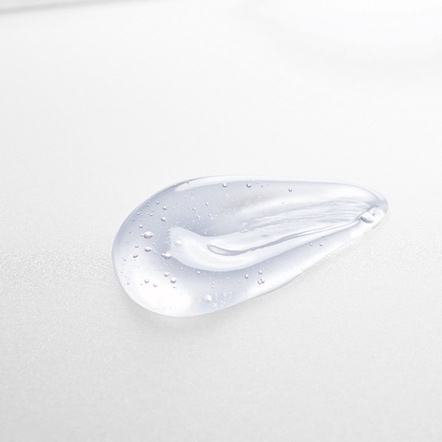
- REFERENCE CODE: POCI-01-0247-FEDER-047032
- FUNDING: Agência Nacional De Inovação S.A.
- PROGRAMME: P2020|COMPETE – Projetos em Copromoção
- PERIOD OF EXECUTION: 01/10/2020 – 31/05/2023
- COORDINATOR: Adriano da Silva Carvalho
- WEBSITE: https://transparencia.gov.pt/fundos-europeus/beneficiarios-projetos/projeto/POCI-01-0247-FEDER-047032
ABSTRACT:
Este projeto tem como objetivo o desenvolvimento de formulações e pensos à base de mel e de ácido hialurónico, produtos popularmente conhecidos e utilizados em Portugal, para a prevenção e tratamento de feridas crónicas em todas as suas fases.
Às propriedades terapêuticas do mel isolado serão adicionados outros compostos, como o ácido hialurónico, contribuindo para uma cicatrização mais rápida e eficaz da ferida, originando formulações diferenciadoras no mercado dos dispositivos médicos, com um desempenho superior às existentes e a um custo unitário e global mais reduzido.
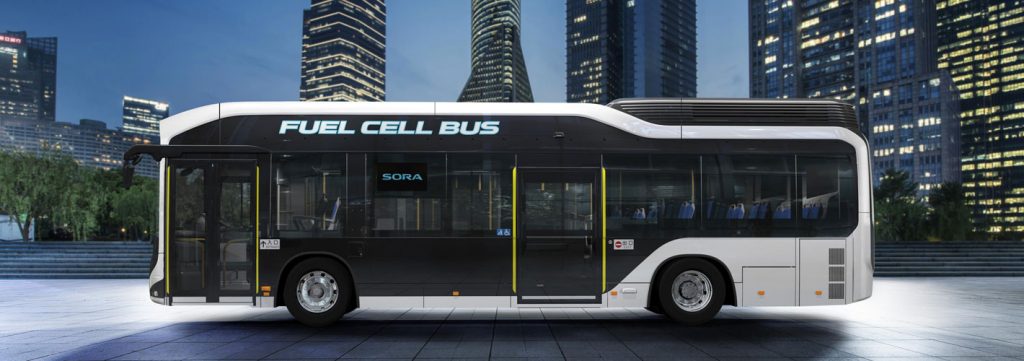
- REFERENCE CODE: POCI-01-0247-FEDER-039980
- FUNDING: Agência Nacional De Inovação S.A.
- PROGRAMME: P2020|COMPETE – Projetos em Copromoção
- PERIOD OF EXECUTION: 01/10/2018 – 30/09/2021
- COORDINATOR: Adriano da Silva Carvalho
- WEBSITE: https://sigarra.up.pt/faup/pt/projectos_geral.ficha_projecto?p_id=75210
ABSTRACT:
The main objective of the project H2-UI4PT: H2 Usage Improvement for Public Transport is the investigation and development of new technological solutions that allow the hybridization of an electric urban bus with a new fuel-cell solution for medium-distance routes. The aim is, therefore, to design and develop a new bus that benefits from the synergistic operation of two energy sources, namely a fuel cell and a lithium battery, in order to increase the energy storage capacity, ensuring adequate performance in dynamic acceleration/deceleration regimes and the ability to recover and store braking energy. To achieve this objective, an innovative research strategy was established based on four technical-scientific aspects: i) to study, characterize and optimize the performance of the fuel cell applied to a heavy vehicle intended for medium-distance routes; (ii) design and develop an electronic power converter that performs the optimized management and interface of the lithium battery with the DC bus; (iii) design and develop a supervision and management system for the distribution of stored energy and the electrical power necessary for the regenerative traction/braking of the bus; and (iv) study and develop an HVAC system supported by the reuse of energy dissipated by hydrogen technology.
In this context, the Project will be promoted by a complete consortium, formed by a business entity, with robust R&D skills in the technological areas addressed and which will take the new technologies to be developed, CaetanoBus, which will be supported by technical-scientific knowledge two departments of FEUP (Department of Electrotechnical and Computer Engineering and the Department of Chemical Engineering), with the involvement of Barraqueiro as a partner and early adopter of the new bus.

- REFERENCE CODE: POCI-01-0247-FEDER-026653
- FUNDING: Agência para o Investimento e Comércio Externo de Portugal, E.P.E
- PROGRAMME: RCI – Regime Contratual de Investimento
- PERIOD OF EXECUTION: 01/09/2017 – 31/08/2022
- COORDINATOR: Gil Manuel Magalhães de Andrade Gonçalves
- WEBSITE: https://www.criticalmanufacturing.com/en/r-d/indtech
ABSTRACT:
This project concerns the design, development and synthesis of a novel control and estimation architecture for multi-agent subsystems constrained by a common environment in which short term individual goals conflict with the long term desirable global system evolution. The envisaged control and estimation framework to feed Decision-Support Systems for all decision-making instances within the global system. The range of problems motivating such an architecture is extremely diverse and pervasive: Sustainable exploitation of natural resources, advanced manufacturing systems, governance of societal systems (health, mobility, etc.), and control of artificial systems subject to constraints on the required resources. The proposed research effort is inspired in two different case studies of sustainable management pertinent to the North Region: a) Intensive dairy farmlands of lowland northwest Portugal. b) Farmlands in Peneda-Gerês national park targeting Biodiversity Conservation.
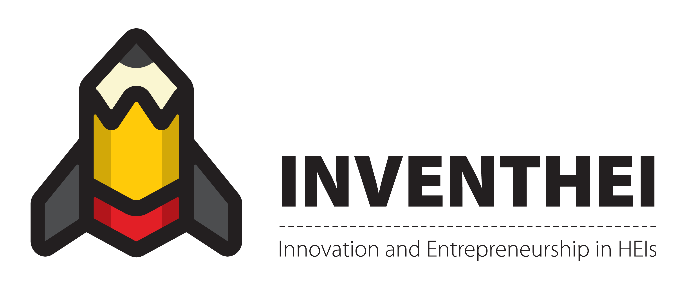
- REFERENCE CODE: 495
- FUNDING: European Institute of Innovation & Technology
- PROGRAMME: EIT Manufacturing – EIT Manufacturing (KIC LE)
- PERIOD OF EXECUTION: 01/07/2021 – 30/06/2023
- COORDINATOR: Gil Manuel Magalhães de Andrade Gonçalves
- WEBSITE: https://eit-hei.eu/projects/inventhei/
ABSTRACT:
INVENTHEI envisions that by 2025 a critical mass of highly educated young entrepreneurs and innovators will be trained by the participating higher education institutions (HEIs), contributing to the emergence of highly dynamic innovation districts and favouring the setup or inshore ofknowledge-intensive companies on cutting edge technologies, value added products and services, and innovative business models. Innovation districts also have an enhanced capacity to provide students with new ideas, skills and entrepreneurial talent. Students are the new generations of professionals, but they can also be trained and encouraged to become innovators and entrepreneurs, contributing to the creation of jobs and economic growth.
INVENTHEI builds on existing practices and infrastructures to enhance the regional innovation ecosystems and promote innovation-driven research. One of the objectives is to setup an HEIdriven European Network of Innovation districts. Together, the consortium will build on existing experience and will explore synergies with research and innovation activities to nurture and foster an innovation and entrepreneurial culture in the participating universities.
INVENTHEI will implement an IVAP built around 3 dimensions connected to the EIT pillars:
- Learning and Mentoring programmes, focused on training, mentoring and engagement of students and staff (education pillar).
- Learning and Teaching structures, focused on providing testbeds and innovation driven research (innovation pillar).
- Learning and Collaboration, focused on programs for collaboration and exchange between industry, research and academia (business pillar).

- REFERENCE CODE: NORTE-08-5369-FSE-000027
- FUNDING: Comissão de Coordenação e Desenvolvimento Regional do Norte
- PROGRAMME: P2020|Norte2020 – Programas doutorais
- PERIOD OF EXECUTION: 13/01/2020 – 30/06/2023
- COORDINATOR: Rui Artur Bártolo Calçada
- WEBSITE: https://web.fe.up.pt/~irail/
ABSTRACT:
The PhD programme aims to respond to the actual concerns towards achieving a high capacity, efficient, resilient, cost-efficient, and sustainable rail transportation system. The iRail programme associates the University of Porto and the University of Minho, from Portugal, and the University of São Paulo, from Brazil.
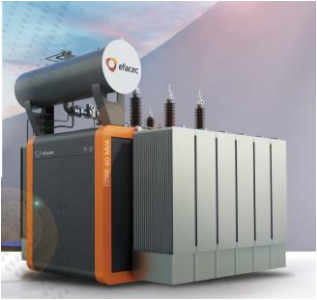
- REFERENCE CODE: POCI-01-0247-FEDER-047209
- FUNDING: Agência Nacional de Inovação S.A.
- PROGRAMME: P2020|COMPETE – Projetos em Copromoção
- PERIOD OF EXECUTION: 01/06/2020 – 30/06/2023
- COORDINATOR: Adriano da Silva Carvalho
- WEBSITE: https://transparencia.gov.pt/fundos-europeus/beneficiarios-projetos/projeto/POCI-01-0247-FEDER-047209
ABSTRACT:
The project that is applying here, NextGenHPC, will be developed over 30 months, by a consortium composed of a business entity and two non-business entities of the research and innovation system, specifically, Efacec Electric Mobility (hereinafter EEM), the Faculty of Engineering of the University of Porto (FEUP) and the Institute of Science and Innovation in Mechanical Engineering and Industrial Engineering (INEGI).
The NextGenHPC project aims at the study and development of a new, highly advanced generation of ultra-fast charging systems, based on the development of a disruptive power electronics platform with a modular structure, allowing new solutions with a continuous charging capacity of up to 600A for 1000V, with the possibility of reaching 1500V, providing advanced features of Asset Management, Electric Mobility management, integrated management with energy storage and new security architectures, thus responding to the concerns, demands and trends of the current market.
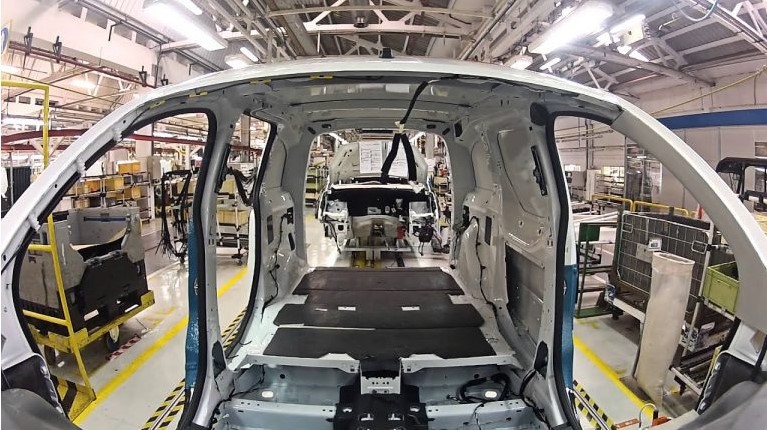
- REFERENCE CODE: POCI-01-0247-FEDER-072616
- FUNDING: Agência Nacional de Inovação S.A.
- PROGRAMME: P2020|COMPETE – Projetos em Copromoção
- PERIOD OF EXECUTION: 01/03/2021 – 31/05/2023
- COORDINATOR: Gil Manuel Magalhães de Andrade Gonçalves
ABSTRACT:
Industrial modernization has motivated investments in research and development (R&D) of new IIoT/IoRT (Industrial Internet of Things/Internet of Robotic Things) sensing concepts for distributed applications and robotics with advantages in terms of efficiency, production cadence and quality. However, the available solutions suffer from technical-scientific limitations in terms of flexibility, transparency and adaptability to the ?real world?. The project aims to develop a new IIoT/IoRT system applicable in a transversal and flexible way to the quality inspection and quality control process in complex production lines in the automotive industry, including environmental and energy monitoring, wastewater and gas treatment. Collaborative robotic systems will be investigated and developed (with the integration of robotic manipulators and controllers), and artificial vision mechanisms integrated into an IIoT/IoRT sensing ecosystem, namely: (i) collaborative robotic system for visual inspection and quality control in dynamic and (ii) robotic system in a mobile and portable unit for the identification and analysis of non-conformities, which integrate with artificial vision algorithms, in order to achieve properties of versatility, flexibility and transparency in the identification of non-conformities, including the ability to self-reprogram / self-reconfiguration through intelligent self-learning. The proposed solution will enhance the sensing of PSA Mangualde’s shop floor, within the new concepts of Industry 4.0.

- REFERENCE CODE: POCI-01-0247-FEDER-046102
- FUNDING Agência Nacional de Inovação S.A.
- PROGRAMME: P2020|COMPETE – Programas Mobilizadores
- PERIOD OF EXECUTION: 01/04/2020 – 30/06/2023
- COORDINATOR: Gil Manuel Magalhães de Andrade Gonçalves
- WEBSITE: http://mobilizadores.produtech.org/pt/produtech_4_s_c
ABSTRACT:
The PRODUTECH4S&C Mobilizer Project is a response from the production technologies (FTP) sector for the construction of a circular and sustainable manufacturing industry. It advocates the development of differentiating solutions, in response to the urgent need to transform the industry towards sustainability and circular economy, enabling FTP to assume a key position in a global niche:
◦ production technologies that facilitate circularity and industrial sustainability Incorporates, a coherent set of interventions, aimed at the development of products-systems-services, ecosystems of tools and applications, methodologies, and strategies, supported by the new paradigms of digitization, aimed at:
▪ Capacity building for the development of new sustainable products (production systems and components)
▪ Integration and advanced management of sustainable production systems, zero defects – zero environmental impacts
▪ Symbiotic management of production ecosystems and supply chains in a circular context
▪ And the implementation of circular and sustainable approaches in manufacturing industry.
It embodies a research and innovation agenda, in the fields of production technologies, circular economy, cyber-physical systems and modernization of industry. It results from the concertation and critical mass of companies and entities, for an effective development and endogenization. It provides for the creation, acceleration, and demonstration of solutions, in user sectors, and the wide dissemination in view of their effective dissemination. It will be translated into new products-services, with high added value, the reinforcement of FTP’s international positioning, and will enhance its qualified integration in global value/innovation chains and knock-on effects to the industry. of the PRODUTECH cluster and the clustering movement in FTP, comprising core developments of the strategic axis Mobilization for frontier R&D+I.
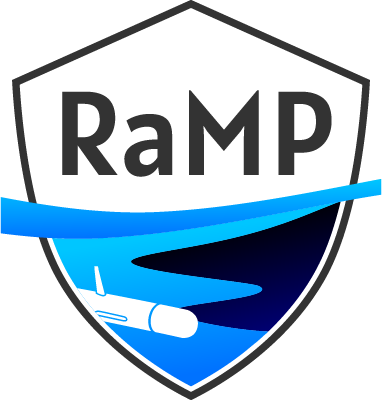
- REFERENCE CODE: FA_06_2017_077
- FUNDING: Fundo Azul
- PROGRAMME: Direção-Geral de Política do Mar
- PERIOD OF EXECUTION: 15/01/2020 – 14/07/2022
- COORDINATOR: João Tasso de Figueiredo Borges de Sousa
- WEBSITE: https://lsts.fe.up.pt/project/ramp-rapid-response-marine-pollution
ABSTRACT:
Currently in Portugal there is a stagnation in the number of cases of marine pollution incidents intervened since 2010, however, there is a significant increase in the number of incidents reported since 2013. Incidents that are regularly smaller in scale and more localized either in space, or in time, and that they require from the national authorities a multiplication of resources for the necessary verification. Therefore, there is an increasing need to use the latest technology to assist in the execution of this task, especially using autonomous vehicles, due to their low operating cost and greater efficiency. This proposal aims to demonstrate the added value of using observation networks with multiple autonomous vehicles to support traditional means for verifying marine pollution reports reported to local entities, especially about in situ verification by the National Maritime Authority.
This bold and radical proposal proposes the development and training of autonomous aerial, surface, and submarine vehicles of low cost for prevention, monitoring, inspection and response operations to marine pollution events. Working together with current numerical modeling tools, it aims to minimize the costs inherent to operations, increase their speed and facilitate the identification of polluting sources. Through the design and implementation of simple rapid sampling processes, this project aims to increase the national capacity to monitor and respond to marine pollution and, at the same time, minimize risks, safeguarding ecosystems, material goods and human lives.
The results of this demonstrator project will allow a transfer of innovative technological and academic knowledge to all agents involved in the services to combat marine pollution in Portugal, to those who work in the early stages of readiness, placing our country at the international forefront in what reports to this type of action. In conjunction with the General Directorate of the Maritime Authority, new action maps will be drawn up to later update the Clean Sea Plan, establishing the ideal conditions for the creation of local and regional hubs for a future and expanded national network of autonomous maritime monitoring systems effective at the national level. In this way, this project will decisively contribute to the execution of the commitments assumed by Portugal at the international level. It is also expected that, through the implementation of this project, Portugal will be considered an example to be followed at an international level, with regard to the in-situ verification of marine pollution reports, contributing significantly to increasing the capacity to monitor and respond to international events.
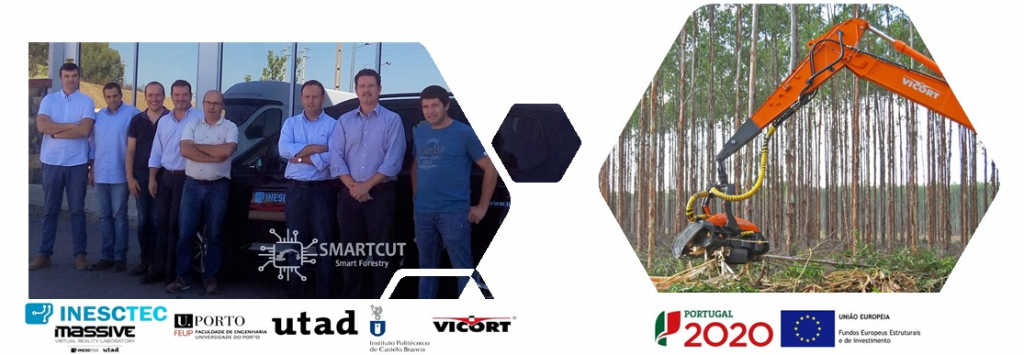
- REFERENCE CODE: POCI-01-0247-FEDER-048183
- FUNDING Agência Nacional de Inovação S.A.
- PROGRAMME: P2020|COMPETE – Programas Mobilizadores
- PERIOD OF EXECUTION: 01/09/2020 – 30/06/2023
- COORDINATOR: Gil Manuel Magalhães de Andrade Gonçalves
- WEBSITE: http://mobilizadores.produtech.org/pt/produtech_4_s_c
ABSTRACT:
The maintenance costs of forest machines constitute one of the most relevant elements in forest operations. In most situations, the higher cost does not come from the repair itself, but from the machine’s downtime and the impact that this stop could have on the service chain, leading to the stoppage of downstream equipment due to lack of supply. Identifying the nature of the malfunctions and how quickly the technical assistance can respond is a critical success factor. This issue is amplified when the company selling forest machines intends to operate in foreign markets and its framework is that of an SME, in which human, technical and financial resources are more limited, depending on local representatives with the same problems, but they also must be technically trained to convey confidence to potential customers.
The project focuses on the design and development of a CAN technology-based forestry equipment sensing solution, which allows the execution of remote diagnosis, tele maintenance and forest monitoring tasks by the company producing the equipment and/or its representatives, in each Country of operation.
It also focuses on the design and development of an innovative virtual training scenario authoring tool that will take advantage of a physical simulator/emulator to recreate, via virtual reality, the operation and malfunction conditions of equipment and, simultaneously, the orographic and physical features found in the field. This authoring tool will allow training and/or improving the operational efficiency of forestry equipment operators and maintenance technicians, contributing to the faster reduction and repair of breakdowns and to the management and maintenance of training scenarios based on immersive virtual reality and, in this way, contribute to an increase in its competitiveness.
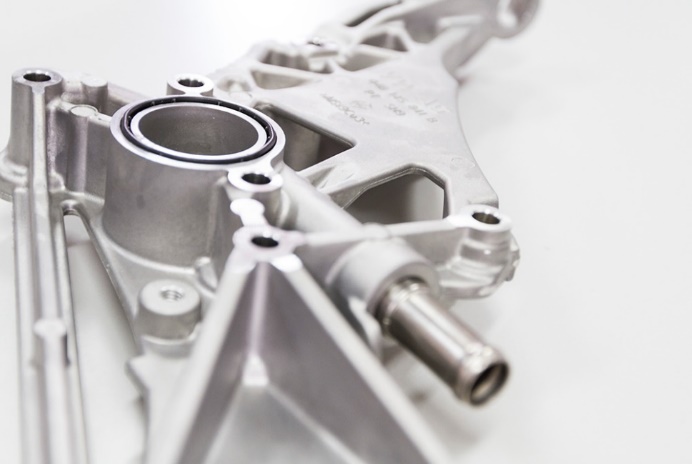
- REFERENCE CODE: POCI-01-0247-FEDER-039920
- FUNDING: Agência de Inovação, S.A.
- PROGRAMME: I&D em Consórcio
- PERIOD OF EXECUTION: 17/06/2019 – 16/06/2022
- WEBSITE: https://sigarra.up.pt/faup/pt/projectos_geral.mostra_projecto?p_id=75811
ABSTRACT:
Currently, SONAFI’s production is entirely directed to the automotive sector, and its production process is dedicated to the manufacture of aluminum components for internal combustion engines (MCI). However, with the growth of electric mobility, the number of components manufactured for this type of vehicle shows a decreasing trend. In the context of lightweight design, aluminum has been increasingly used as a substitute for steel in structural elements.
SONAFI has been asked to manufacture components with greater technical requirements, mainly mechanical resistance. However, the aluminum injection process currently used by SONAFI does not allow to obtain components with mechanical properties compatible with these new requirements. The gaseous porosities inherent in the injection process deteriorate the mechanical properties of the parts and prevent them from being subjected to heat treatments to increase their resistance, otherwise the “blistering” phenomenon may occur. The project aims to develop high performance parts, injected in aluminum alloys. To achieve this goal, an R&DT work plan was drawn up (with INEGI) which encompasses: i) implementation of a methodology for monitoring and controlling parameters associated with injection molds, properly aligned with the “Industry 4.0” philosophy; ii) implementation, optimization, monitoring and control of vacuum assisted injection systems; iii) make it possible to obtain high performance products, complying with the strict specifications imposed by customers through the application of heat treatments and/or introduction of primary and new generation alloys. The goal is to provide SONAFI with the capacity to produce high performance components, not only compatible with the new requirements of the automotive sector, but also allowing entry into other markets, reducing its dependence on components for MCI.
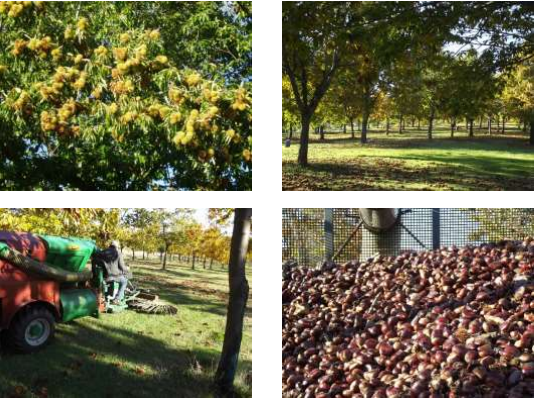
- REFERENCE CODE: PDR2020-1.0.1-FEADER-032041
- FUNDING: Agência para o Desenvolvimento e Coesão, IP
- PROGRAMME: PDR2020 – Programa de Desenvolvimento Rural 2014-2020
- PERIOD OF EXECUTION: 01/07/2018 – 31/12/2021
- COORDINATOR: Adriano da Silva Carvalho
- WEBSITE: http://www.refcast.eu/valorcast
ABSTRACT:
Portugal is one of the main European and world nut producers with around 45,000 t/year (according to estimates by RefCast). Typically, most Portuguese nuts are sold to medium and large-scale marketing companies, where they undergo a cleaning, disinfection and calibration process, preparing them to be marketed for fresh consumption.
It is estimated that around 40 to 50% of the nuts are lost along the chain between the chestnut grove and the chestnut’s output for trade, mainly due to animal pest problems, rotting, +weight loss and small nut. This loss can represent around 12,000 t of cashew nuts (around €24 M), out of a total of around 30,000 t processed, which will have to be immediately diverted to scrap. This high percentage of losses raises serious problems in the processing of chestnuts, significantly raising intermediate costs, which will cause an increase in the price of the chestnut and may lead to some inhibition in its consumption.
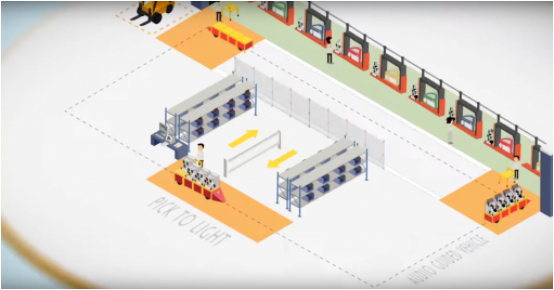
- REFERENCE CODE: POCI-01-0247-FEDER-072638
- FUNDING: Agência de Inovação, S.A.
- PROGRAMME: P2020|COMPETE – Projetos em Copromoção
- PERIOD OF EXECUTION: 01/03/2021 – 30/06/2023
- COORDINATOR: Gil Manuel Magalhães de Andrade Gonçalves
- WEBSITE: https://rari.eu/en/wof-warehouseofthefuture/
ABSTRACT:
In the era of mass customization, OEM production centers experience a massive flow of
components to be supplied and fed to the assembly lines. In this context, the Smart Warehouse paradigm emerges, which, although complex in configuration and implementation, is based on emerging technologies to provide full automation, integration and digitalization of logistics and intralogistics flows. In this way, RARI has structured a complete consortium that proposes to develop innovative intelligent, highly flexible, connected and efficient systems, with a view to establishing a new paradigm of the Warehouse of the Future based on the sensing of people, equipment and components, as well as automation. and real-time management of stabilization, picking and material/component movement processes. Seeking to implement specific use cases, which aim to demonstrate the technologies from a ?living lab? perspective, in an industrial context (i.e., on the factory floor of PSA Mangualde), the project comprises the R&D of three distinct solutions, namely:
- New seamless wireless pick-to-light system, with high autonomy, flexibility and capacity
sensory, inducing a fully traceable picking process, in line with Industry 4.0 paradigms and production based on high levels of flexibility; - New robotic solutions for automatic picking, including the automatic handling and movement of parts and kits, through the fusion of artificial vision and collaborative robotics techniques with 5G-ready communication technology;
- Systems for monitoring and optimizing the stabilization of materials and their automatic movement, integrating the investigation of an accelerating stabilization process of green materials and the development of an advanced sensing component for the accurate monitoring of the material’s stabilization status, as well as an integrated solution
for automatic handling of considerable load.
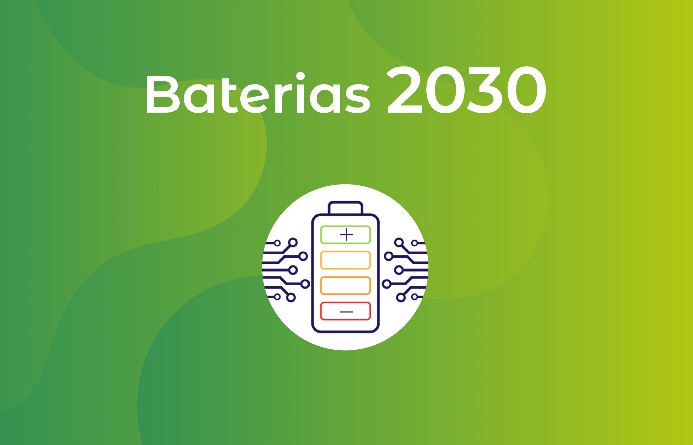
- REFERENCE CODE: POCI-01-0247-FEDER-046109
- FUNDING: Agência Nacional de Inovação S.A.
- PROGRAMME: P2020|COMPETE – Programas Mobilizadores
- PERIOD OF EXECUTION: 01/01/2020 – 30/06/2023
- COORDINATOR: Adélio Miguel Magalhães Mendes
- WEBSITE: https://www.inesctec.pt/en/projects/baterias2030#about
ABSTRACT:
The decarbonization of cities, based on the phased removal of fossil fuels and the progressive integration of endogenous renewable sources, emerges as an instrument in the fight against climate change. The energy model of the future is based on renewable production and, as this is intermittent, there is always a need for intermediate storage. This storage, for reasons of savings in distribution, will have to be done locally in the buildings themselves and integrated in intelligent micro-grids. For all this to happen, the role of batteries is central and poses numerous challenges.
It is in this context that the 2030 Batteries project arises, with the objective of responding to the challenges related to the decarbonization and dissemination of sustainable energy communities, in what is expected to be the cities of the future. The project comprises 6 PPS, 4 of which focus on technical-scientific domains (PPS1 to PPS4), and the technologies that will result from them will be integrated and demonstrated in an urban space (PPS5), seeking to establish an energy community, based on a micro-grid low carbon, promoting the replacement of fossil fuel consumption, and thus the reduction of CO2 in urban space.
The project will be developed by a consortium made up of 14 companies, led by DST Solar, able to value the results expected in each PPS, but also by 9 non-business entities that hold technologies and specific knowledge of high added value in the field of energy, capable of achieving the recommended goals. With an eligible investment of around 9.9 million Euros, the Batteries 2030 project aims to contribute to the development of disruptive technologies, capable of being integrated throughout the value chain, with state-of-art solutions. In fact, Batteries 2030 leverages science and technology around the theme of sustainable energy production, storage, and management.

- REFERENCE CODE: POCI-01-0247-FEDER-046092
- FUNDING: Agência Nacional de Inovação S.A.
- PROGRAMME: P2020|COMPETE – Programas Mobilizadores
- PERIOD OF EXECUTION: 01/03/2020 – 30/06/2023
- COORDINATOR: João Tasso de Figueiredo Borges de Sousa
ABSTRACT:
ASTRIIS is a project that aims to develop technical-scientific knowledge for the design and implementation of integrated and customizable information products and services (and respective demonstrator pilots) as well as their application and exploitation in sectors of the Sea Economy with high potential for development and value creation. The co-promoters intend to break with the current paradigm based on the dispersion/absence of information and knowledge about the marine environment, essential for the development of economic sectors in the sphere of the economy of the sea, with high potential for growth and value generation, such as the tourism, renewables at sea and aquaculture and, the safeguarding of life and goods at sea.
Indeed, although there are many national and international databases, as well as numerical prediction models, there remain significant gaps in knowledge based on observation of the marine environment with in-situ means, as well as rational use and new algorithms that result in applications based on either satellite or UAV earth observation strategies. Furthermore, there are still no facilities for a non-specialized operator to aggregate, cross and analyze this significant amount of data in effective use for specific purposes. The ASTRIIS Project intends to fill this insufficiency. To achieve the objective, a strategy for building the offer of products and services was designed, which emerges from the acquisition of data through in-situ observation and remote sensing, combined with numerical modeling and forecasting, which will respond to the needs of market within the scope of the regulation of the maritime space and the sustainable and integrated management of the exploration of the oceans and coastal zones, as well as of decision processes and structures, or even as digital products open to society in general with a view to their use in training or educational contexts (ocean literacy).
